Blockchain Development in 2025: Key Tools, Trends & Techniques
Smart Contracts | Blockchain in Finance | Blockchain Marketing
Blockchain development is entering a new era as we move into the second half of 2025. No longer confined to cryptocurrency, blockchain has become a foundational technology transforming finance, healthcare, logistics, and even government systems. Discover the top blockchain development trends, tools, and technologies shaping 2025. Stay ahead with insights on smart contracts, DeFi, Layer 2, AI integration, and more.
From AI-powered smart contracts to sustainable blockchain solutions and national digital currencies, the pace of innovation is accelerating. Enterprises and startups alike are racing to harness its full potential, while developers are building smarter, more secure decentralized applications.
In this blog, we explore the top trends, essential tools, and future predictions driving the next wave of blockchain innovation. Whether you’re a developer, entrepreneur, or tech enthusiast, understanding blockchain in 2025 is key to staying ahead.
What is Blockchain Development?
Blockchain development is a revolutionary, decentralized digital ledger used to store, share, and secure information across a network of computers. Instead of being controlled by a single authority (like a bank or government), blockchain operates on a peer-to-peer network, where all participants have access to the same data, ensuring transparency, trust, and security.
Each transaction is recorded in a “block,” and these blocks are linked together in chronological order, forming a chain. Once data is added to the blockchain, it becomes challenging to alter, making it tamper-resistant and ideal for verifying transactions.
Types of Blockchain Development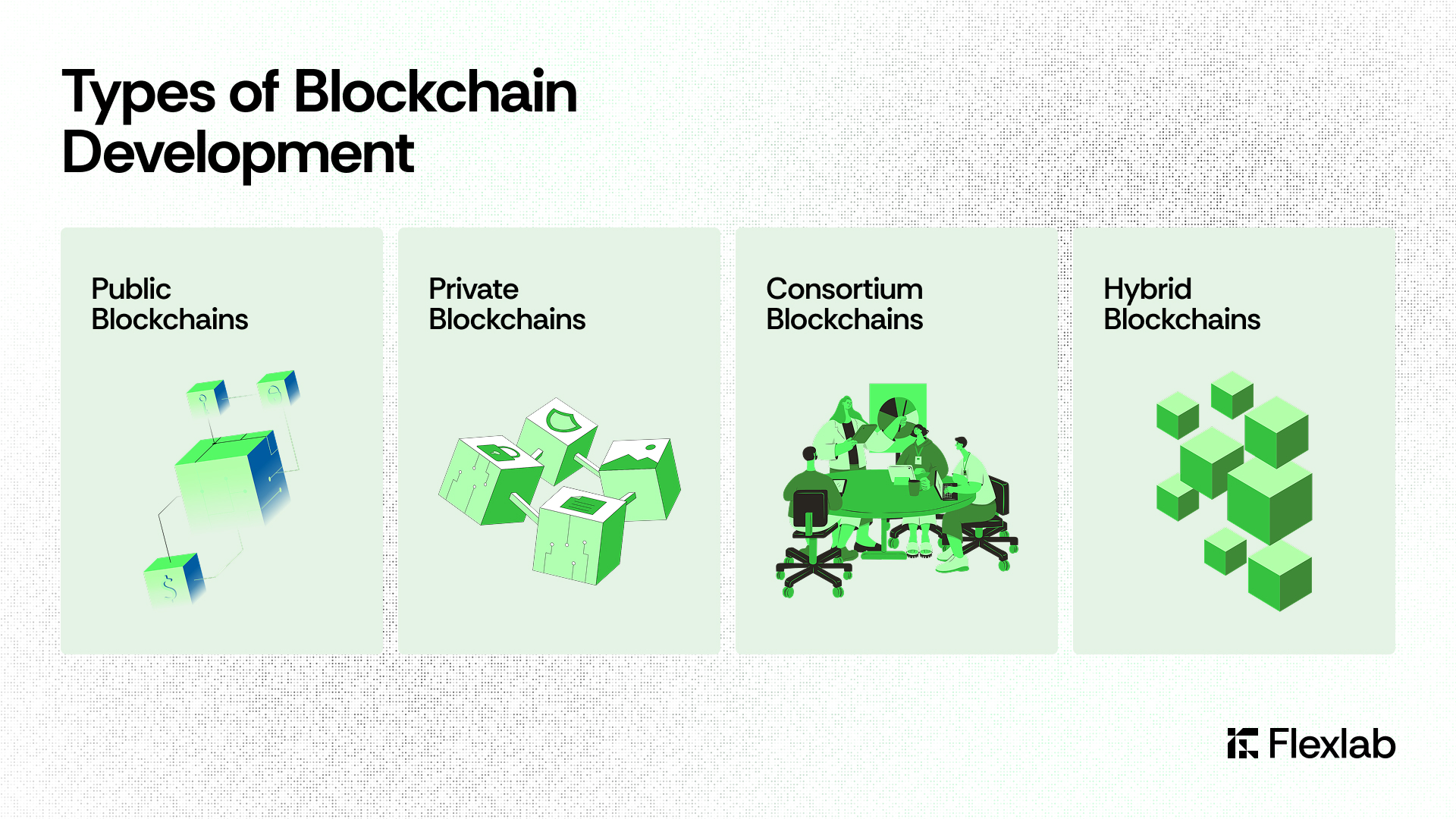
- Public Blockchains: Open, permission less networks like Bitcoin and Ethereum where anyone can participate and validate transactions. They are fully decentralized and transparent but may face scalability and privacy issues. Ideal for cryptocurrencies and decentralized applications.
- Private Blockchains: Permissioned networks controlled by a single organization with restricted access. They offer faster transactions and privacy, suitable for internal business use. Common in supply chains, healthcare, and finance
- Consortium Blockchains: Governed by a group of organizations, balancing decentralization and control. Enable trusted collaboration with improved efficiency and privacy. Used in banking, trade finance, and multi-party industries.
- Hybrid Blockchains: Combine public and private features, allowing selective data access and transparency. Provide flexibility for enterprises needing privacy and regulatory compliance. Useful in healthcare, government, and identity management.
Top 7 Blockchain Development Trends in 2025
In 2025, blockchain is transforming industries with scalable, secure, and sustainable solutions. From blockchain security enhancements to the integration of AI and blockchain, the landscape is rapidly shifting.
Let’s explore the seven biggest blockchain trends that are a hit and dominate in 2025 and pave the way for business development and world growth.
1. Businesses are Now Using Blockchain in Everyday Operations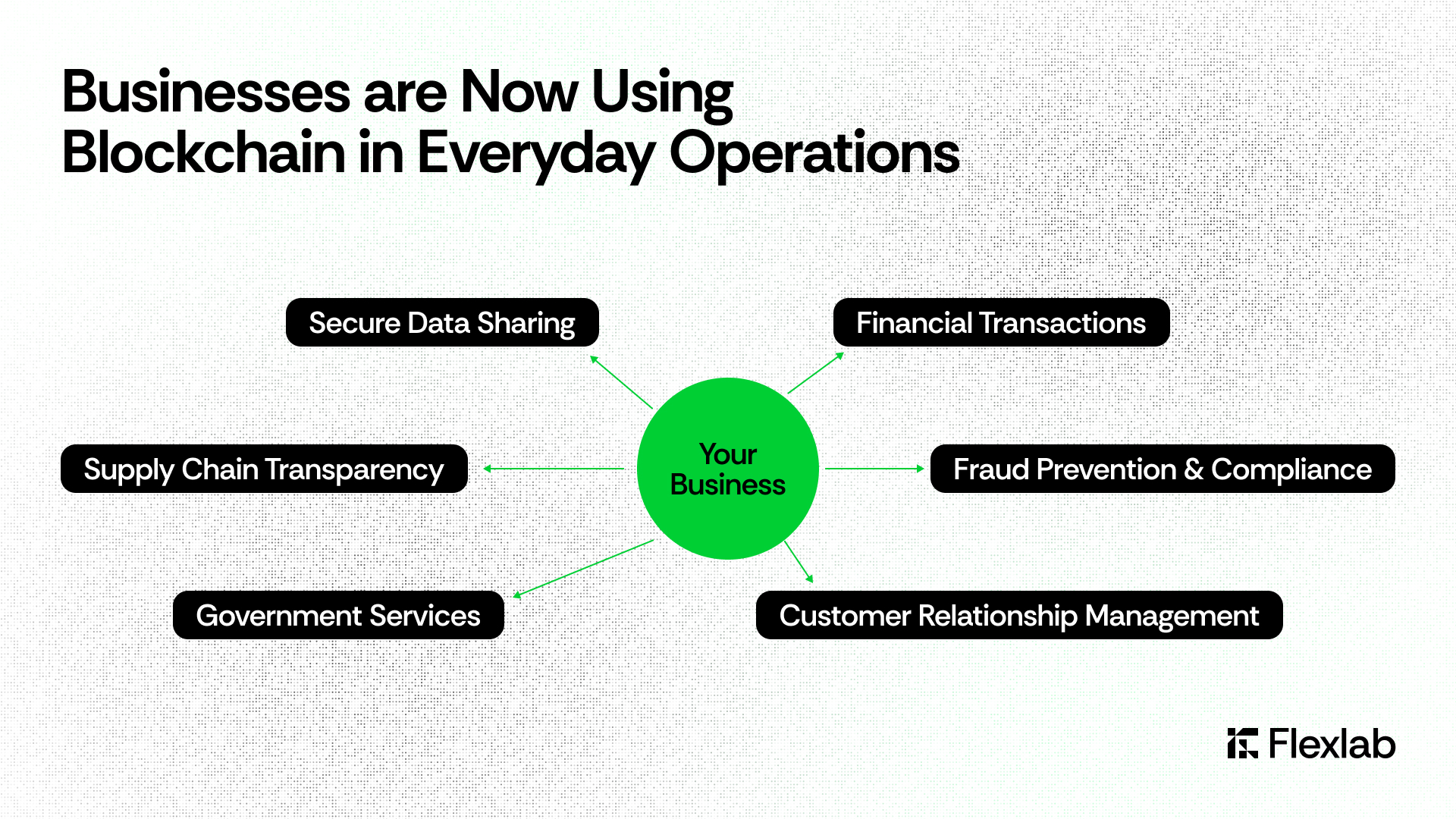
While Bitcoin laid the foundation, 2025 marks a clear shift where blockchain in finance, healthcare, logistics, and governance becomes essential infrastructure.
Here are some key developments with notable examples:
Private & Permissioned Blockchains
- These are exclusive networks where access is restricted to verified participants. They provide enhanced privacy, compliance with regulations, and better control over data.
- Example: A healthcare provider utilizes a private blockchain to securely share patient records with approved clinics, ensuring compliance with HIPAA and protecting patient privacy.
ERP and CRM Integrations
- Businesses are integrating blockchain into core systems, such as SAP and Salesforce, to enhance traceability, combat fraud, and improve decision-making.
- Example: A manufacturer integrates blockchain with SAP to track parts from suppliers, enabling faster recalls and transparent quality control.
Government Use Cases
- From identity verification to public registries, blockchain provides tamper-proof data systems.
- Examples:
- Estonia uses a blockchain-based digital ID system.
- Countries like Sweden and India are exploring blockchain land registries to prevent property fraud.
- Blockchain voting pilots are running in South Korea and Utah, USA, to enhance election security.
This marks a major milestone in the future of blockchain technology, where trustless systems are now trusted by governments and enterprises alike.
2. Rise of CBDCs and Cross-Border Payments
The idea of state-backed digital currencies is quickly becoming a reality, reshaping how global financial systems operate. Central Bank Digital Currencies (CBDCs) offer faster transactions, reduced fees, and greater financial inclusion.
What’s happening:
CBDC Pilot Programs
- India: Trials of the Digital Rupee have expanded across retail and wholesale sectors.
- China: The Digital Yuan is being used in transportation and e-commerce.
- USA & UK: Exploring digital versions of the Dollar and Pound with intense regulatory focus.
Cross-Border Transactions
- Traditional systems like SWIFT are being challenged by blockchain-based, real-time settlements.
- Example: A user in the US can instantly send funds to family in Africa using a CBDC wallet, cutting out banks and slashing remittance costs.
While the rise of CBDCs reflects how countries are digitizing sovereign currencies under regulatory oversight, the concept of a national Bitcoin reserve remains largely experimental, adopted by a few nations like El Salvador but not yet embraced on a global scale.
3. Integration of Blockchain with AI
The integration of blockchain with AI is powering the next wave of intelligent, secure, and autonomous systems across industries.
Smart Contracts with AI Logic
- AI enhances smart contracts by enabling them to adapt to real-time events.
- Example: A decentralized ride-sharing dApp adjusts prices automatically during high demand using AI-enhanced smart contracts.
Fraud Detection
- AI monitors blockchain transactions to detect suspicious activities.
- Example: A financial institution uses AI to prevent fraud and money laundering in real-time by analyzing patterns on blockchain.
Supply Chain Forecasting
- Blockchain ensures data transparency, while AI analyzes it to improve decisions.
- Example: A supermarket uses AI + blockchain to predict demand spikes and suggest reliable suppliers based on delivery history.
This fusion represents a giant leap in Decentralized Finance dApp Development, making decentralized apps smarter and safer.
4. Sustainable and Green Blockchain Solutions
As concerns over energy usage grow, 2025 sees a strong shift toward eco-friendly blockchain development, thanks to innovations in consensus models and renewable-powered infrastructure.
Breakthroughs:
Ethereum Proof-of-Stake (PoS)
- Ethereum’s 2022 switch from PoW to PoS with Ethereum 2.0 reduced energy usage by 99.95%.
- This is a pivotal moment in blockchain security and sustainability, proving that high performance can coexist with low environmental impact.
Carbon Credit Tokenization
- Companies use blockchain to transparently track and trade carbon credits.
- Example: IBM leverages blockchain for verified carbon accounting.
Green Mining
- Newer blockchain projects and Bitcoin mining firms are using solar and wind energy.
- Example: BitGreen and Texas-based miners run rigs on renewable power sources, proving eco-friendly mining is scalable.
Sustainability is now a key factor in choosing the best blockchain development services, especially for ESG-conscious brands.
5. Quantum-Resistant Blockchain Security
With quantum computing advancing, traditional encryption used in blockchain may soon become vulnerable. As a result, developers are preparing next-gen security layers.
Security layers:
Post-Quantum Cryptography (PQC):
- NIST is finalizing standards for quantum-proof algorithms.
- Example: IronFish and QANplatform are implementing PQC to protect transaction integrity in the quantum era.
Multi-Party Computation (SMPC):
- Data is split across parties that compute without seeing each other’s input.
- Example: Secret Network enables privacy-preserving smart contracts using SMPC.
AI-Enhanced Security:
- AI helps detect anomalies before breaches occur.
- Example: Quantinuum uses AI-blockchain combos to protect against advanced cyber threats.
This trend is vital for institutions evaluating the future of blockchain development, where future-proof security is a non-negotiable requirement.
6. Evolution of DeFi
The evolution of DeFi (Decentralized Finance) in 2025 signals a new era of financial tools built for mainstream use. DeFi 2.0 focuses on risk reduction, institutional trust, and innovation.
Key Trends:
Decentralized Insurance
- Smart contracts automate payouts.
- Example: Etherisc pays users for flight delays or smart contract failures without the need to file claims manually.
Algorithmic Stablecoins
- These stablecoins use smart contracts to manage supply and demand automatically.
- Example: DAI by MakerDAO remains pegged to the USD and is collateralized by crypto assets.
Institutional Entry
- Banks like JP Morgan and Goldman Sachs are exploring DeFi protocols.
- Platforms such as Aave Arc now cater to licensed institutions under KYC/AML rules, adding trust and compliance.
The rise of regulated DeFi aligns with broader trends in blockchain technology in financial services, positioning DeFi as a core pillar of tomorrow’s financial infrastructure.
7. Tokenization of Real-World Assets (RWA)
Asset tokenization means turning real-world items like property, stocks, or products into digital tokens stored on a blockchain. These tokens represent ownership or value, and they can be easily traded, tracked, or transferred online.
While this concept isn’t new, in 2025, it’s becoming practical and widely used. What’s different now is the scale and seriousness with which businesses, banks, and governments are adopting it.
Best 7 Blockchain Development Tools To Use in 2025
The right tools are essential for building robust blockchain solutions. Here are the top blockchain development tools for 2025:
Let’s take a closer look at each.
1. Solidity
Solidity is the go-to language for Ethereum smart contract development. Its syntax is similar to JavaScript, making it accessible for web developers. Solidity powers everything from DeFi protocols to NFTs, and its security features are constantly evolving to address emerging threats.
2. MetaMask
MetaMask is more than just a crypto wallet. It’s the bridge between users and decentralized applications. It enables secure transactions, user authentication, and seamless onboarding for dApps, making it indispensable for blockchain companies and developers alike.
3. Geth
Geth allows developers to run full Ethereum nodes, participate in the network, and interact with smart contracts. It’s essential for testing, deploying, and maintaining decentralized applications on Ethereum.
4. Truffle
Truffle streamlines the development process with tools for compiling, testing, and deploying smart contracts. Its integration with Ganache and other tools makes it a favorite among blockchain development companies in the USA and beyond.
5. Remix IDE
Remix IDE is a browser-based environment for writing, testing, and debugging smart contracts. Its intuitive interface and powerful plugins make it ideal for rapid prototyping and education.
6. Web3.js
Web3.js is a JavaScript library that connects web applications to the Ethereum blockchain. It enables developers to build interactive dApps that communicate directly with smart contracts.
7. BaaS (Blockchain-as-a-Service)
BaaS platforms like AWS and Azure offer managed blockchain infrastructure, allowing businesses to deploy scalable, secure solutions without managing the underlying hardware. This is particularly valuable for enterprises seeking the best blockchain development services without a heavy upfront investment.
What to Expect from Blockchain Development in Late 2025?
- Mainstream Adoption: By 2025, blockchain technology will be integrated into mainstream financial services, supply chains, and digital identity systems, driving transparency and efficiency.
- Decentralized Finance dApp Development: DeFi dApps will become more sophisticated, offering everything from lending and insurance to asset management and cross-chain trading.
- Blockchain Security: As threats evolve, blockchain security will remain a top priority. Expect widespread adoption of zero-knowledge proofs, multi-party computation, and privacy-enhancing technologies.
- Integration of Blockchain with AI: AI-driven smart contracts will automate complex processes, optimize workflows, and enhance decision-making across industries.
- National Bitcoin Reserve: If implemented, the US national Bitcoin reserve could set a precedent for other countries, solidifying Bitcoin’s role as a strategic financial asset.
- Evolution of DeFi: DeFi will continue to disrupt traditional finance, with new protocols enhancing liquidity, security, and user experience.
- Cross-Chain Interoperability: Interoperability will become the norm, enabling seamless value transfer and data sharing across multiple blockchain networks.
What is the Environmental Impact of Blockchain Technology?
The environmental impact of blockchain technology has been a hot topic, especially with energy-intensive Proof of Work (PoW) systems. However, 2025 marks a turning point:
- Ethereum Proof of Stake: Ethereum’s switch to PoS has reduced its energy consumption by over 99%, making it one of the most sustainable blockchains.
- Green Smart Contracts: Platforms like Solana and Avalanche are championing eco-friendly smart contracts, aligning with global sustainability goals.
- Sustainable Blockchain Companies: Leading blockchain companies are investing in renewable energy and carbon offset initiatives to minimize their environmental footprint.
Revolutionizing Digital Marketing with Blockchain Technology
Blockchain marketing is transforming digital marketing by:
- Enhancing Transparency: Immutable ledgers ensure that ad impressions and clicks are genuine, reducing fraud.
- Empowering Consumers: Tokenized loyalty programs and decentralized data ownership give users more control over their information.
- Streamlining Payments: Cryptocurrencies and smart contracts enable instant, borderless payments for digital services.
How Does Blockchain Work for Business?
Blockchain for business is revolutionizing how companies operate across various industries by providing enhanced transparency, automation, and security. One of the key benefits is improved supply chain transparency. Blockchain enables real-time tracking of goods and creates immutable records that increase trust among partners and consumers while boosting overall efficiency.
Additionally, blockchain for business leverages smart contracts to automate processes, significantly reducing paperwork and manual intervention, which lowers operational costs and minimizes errors.
Furthermore, the decentralized nature of blockchain combined with advanced cryptographic techniques enhances data security, protecting businesses from cyber threats and data breaches.
By adopting blockchain for business, organizations can streamline operations, build stronger stakeholder trust, and create more resilient and transparent ecosystems.
How to Hire Blockchain Developers?
Hiring blockchain developers requires a clear strategy to find the right technical skills, experience, and reliability.
Define the Project You Need
Start by defining your project needs, whether it’s a smart contract development, DeFi dApps, NFT platforms, or enterprise solutions. For Ethereum-based projects, knowledge of Ethereum Proof of Stake is crucial due to its growing importance in the blockchain ecosystem.
Choosing the Right Hiring Model
Choosing the right hiring model is equally important. You can hire full-time developers, freelancers, or collaborate with a trusted blockchain development company in the USA. Partnering with such a company offers comprehensive expertise, from project architecture to deployment, while ensuring adherence to blockchain security best practices.
Key Skills to Look For
When hiring blockchain developers, it’s essential to focus on both technical expertise and practical experience. Look for proficiency in Solidity, which is the primary language for Ethereum smart contracts, as well as familiarity with Web3.js and Ethers.js libraries that facilitate blockchain interactions. Additionally, experience with dApp development frameworks like Truffle and Hardhat is valuable.
Shortlist and Interview the Developer
Once you have identified potential candidates, shortlist them by reviewing portfolios, GitHub repositories, and past projects. Conduct thorough technical interviews and assign trial tasks to evaluate their problem-solving skills and practical knowledge. Prioritize developers who demonstrate strong adherence to blockchain security protocols and can communicate effectively about their work.
Building a Long-Term Partnership
Since blockchain is an evolving technology, aim to build a long-term partnership with developers or firms that keep up with the latest trends and security standards. This ensures your project remains scalable, secure, and aligned with industry advancements.
Conclusion: Future of Blockchain Development
The future of blockchain development is bright, dynamic, and full of promise. As we head into the latter half of 2025, trends like the evolution of DeFi, the rise of cross-chain solutions, the integration of blockchain with AI, and the establishment of a national Bitcoin reserve are reshaping the digital landscape. Blockchain security, sustainability, and interoperability are at the forefront, driving innovation and adoption across industries.
Whether you’re a startup, enterprise, or investor, now is the time to embrace blockchain technology and unlock its transformative potential. The question is no longer “What is the future of blockchain?”Instead, it’s how you’ll leverage it to stay ahead.
Ready to Build the Future?
Partner with Flexlab, the leading blockchain development company in the USA, renowned for delivering the best blockchain development services. Whether you need cutting-edge Decentralized Finance dApp Development, cross-chain solutions, or secure enterprise-grade platforms, Flexlab’s expert team will turn your vision into reality. Explore our portfolio to see examples of our successful projects and proven expertise. Don’t just keep up with the future of blockchain technology—lead it.
Contact us today and transform your business with blockchain innovation!
Ready to Launch Your Blockchain Project?
📞 Book a FREE Consultation Call: +1 (416) 477-9616
📧 Email us: info@flexlab.io
FAQs
Q1: Where will blockchain technology be in 5 years?
In the next five years, blockchain will be widely used in finance, healthcare, and logistics. CBDCs and asset tokenization will be mainstream. AI integration and cross-chain tech will drive smarter, scalable dApps.
Q2: Is it worth learning blockchain development in 2025?
Yes, learning blockchain development in 2025 is highly valuable, as demand for blockchain talent is growing across sectors like finance, healthcare, and supply chain. With the rise of DeFi, CBDCs, and Web3, skilled developers are in high demand.
Q3 Is blockchain the future of the Internet?
Yes, blockchain is shaping the future of the internet by enabling decentralized, transparent, and secure digital ecosystems. It supports Web3, where users control their data and assets without relying on central authorities.
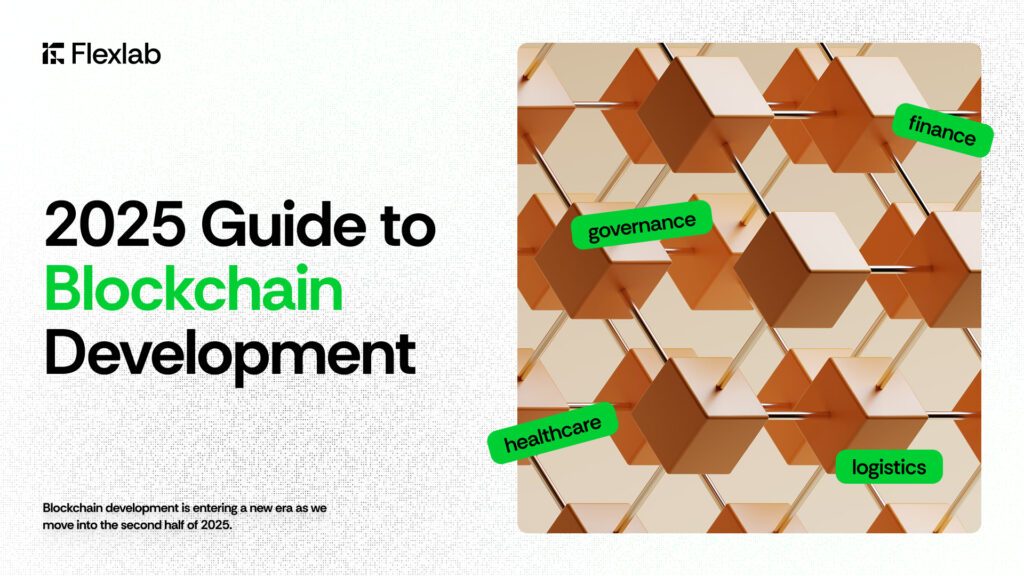
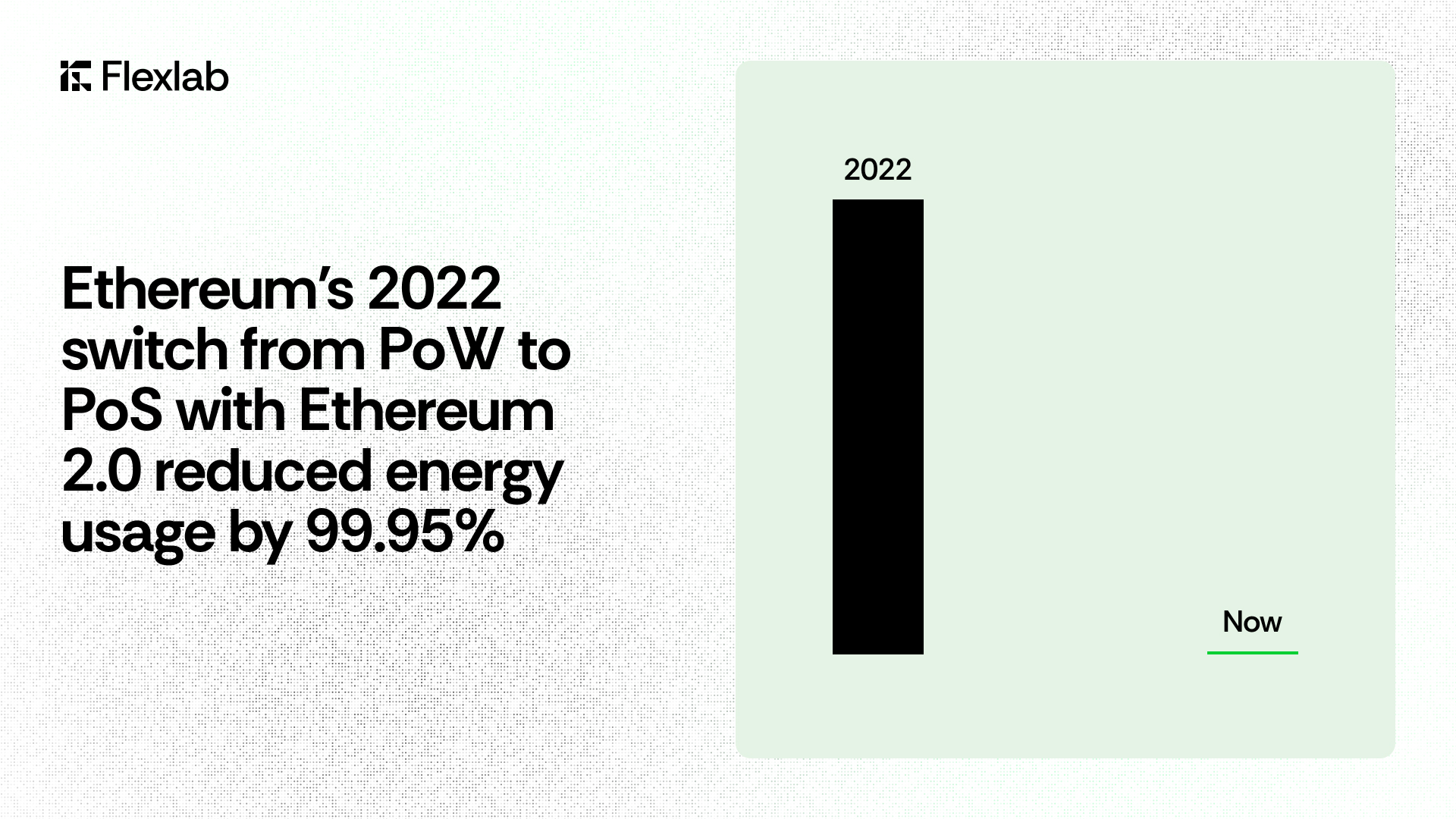
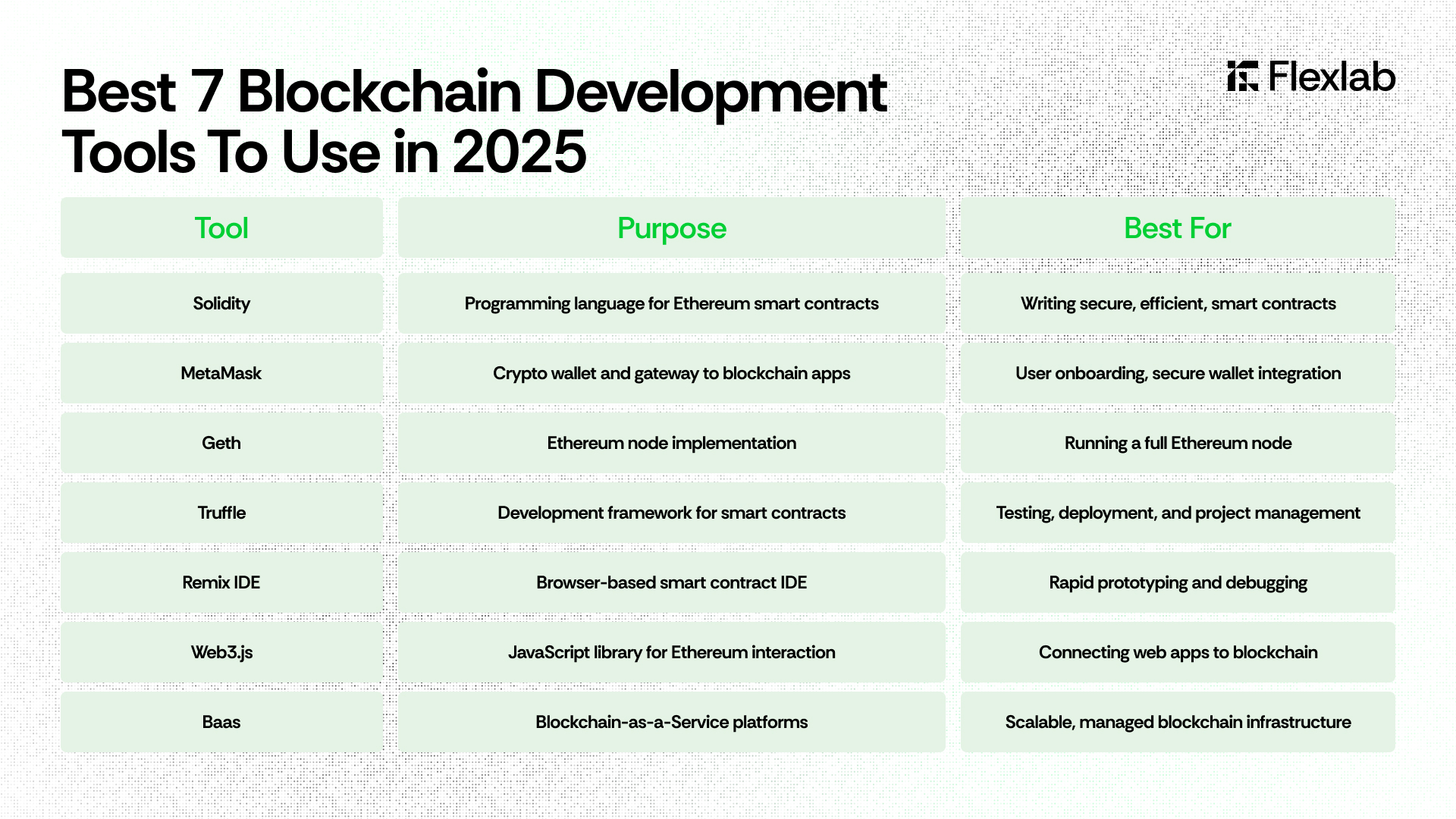
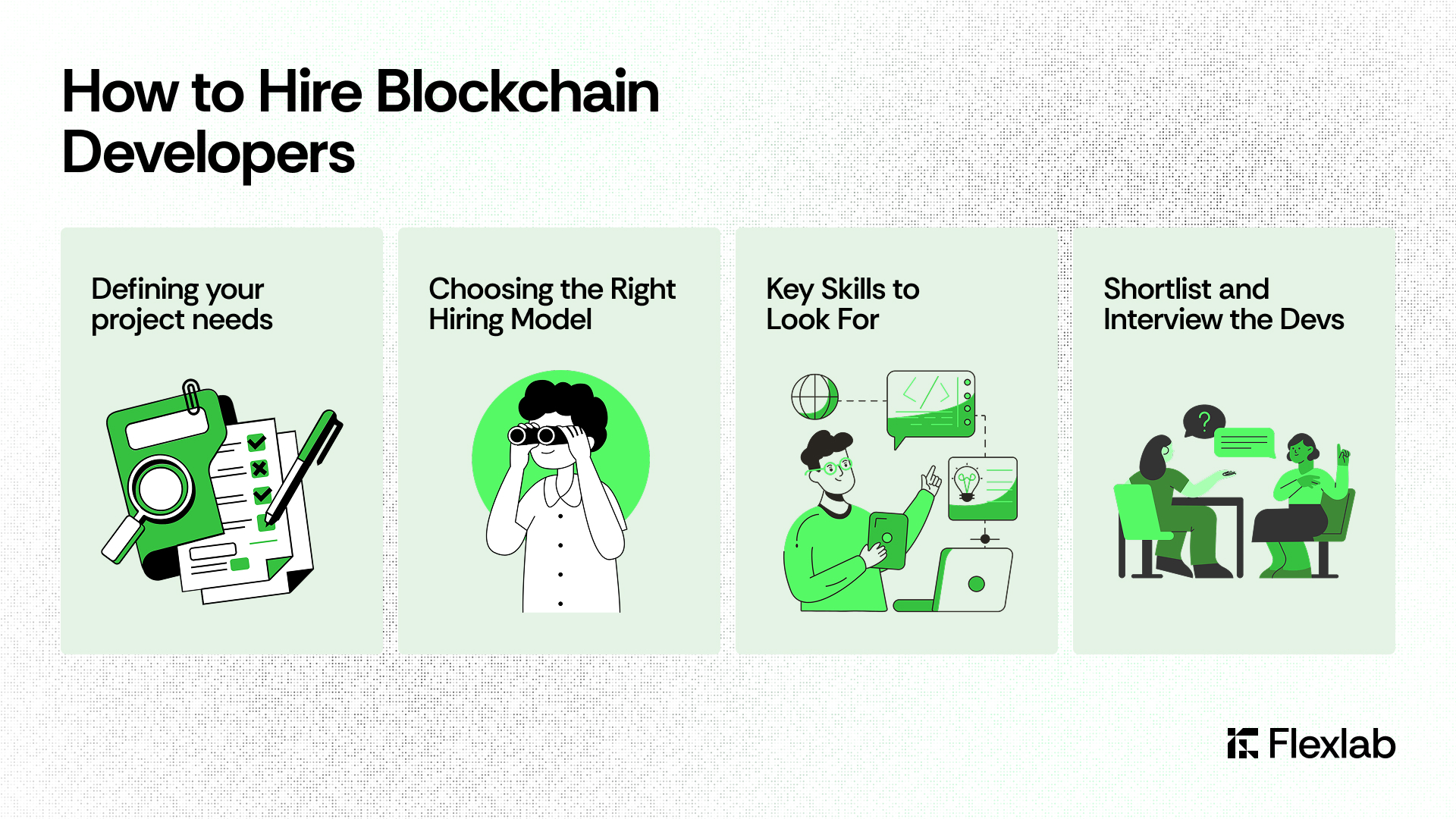
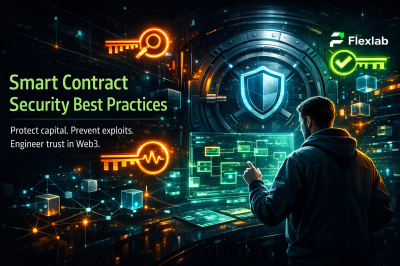
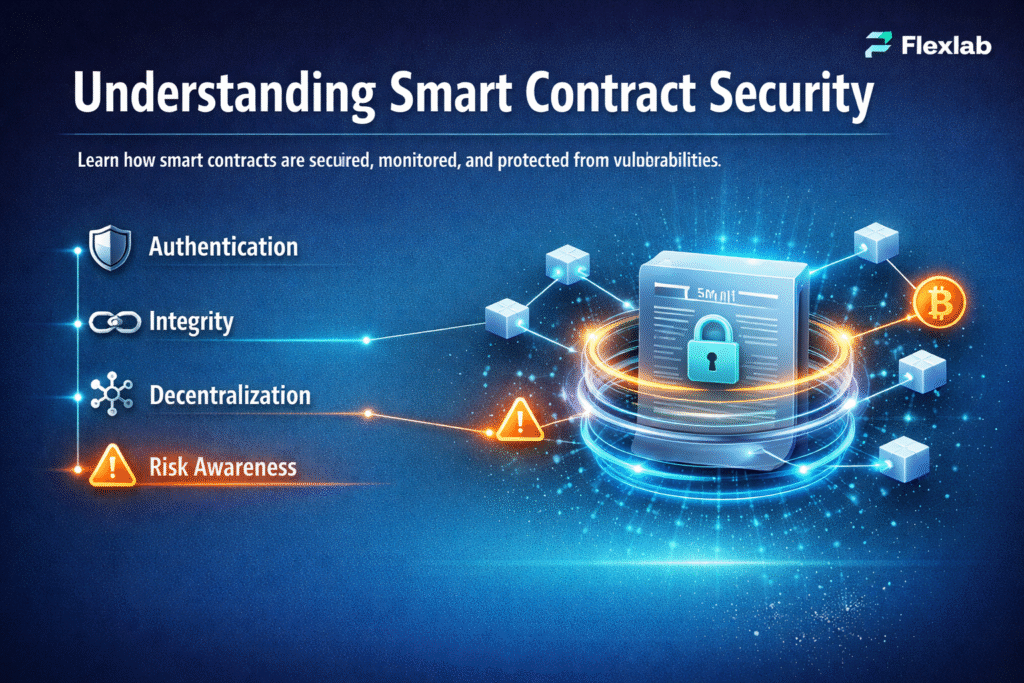
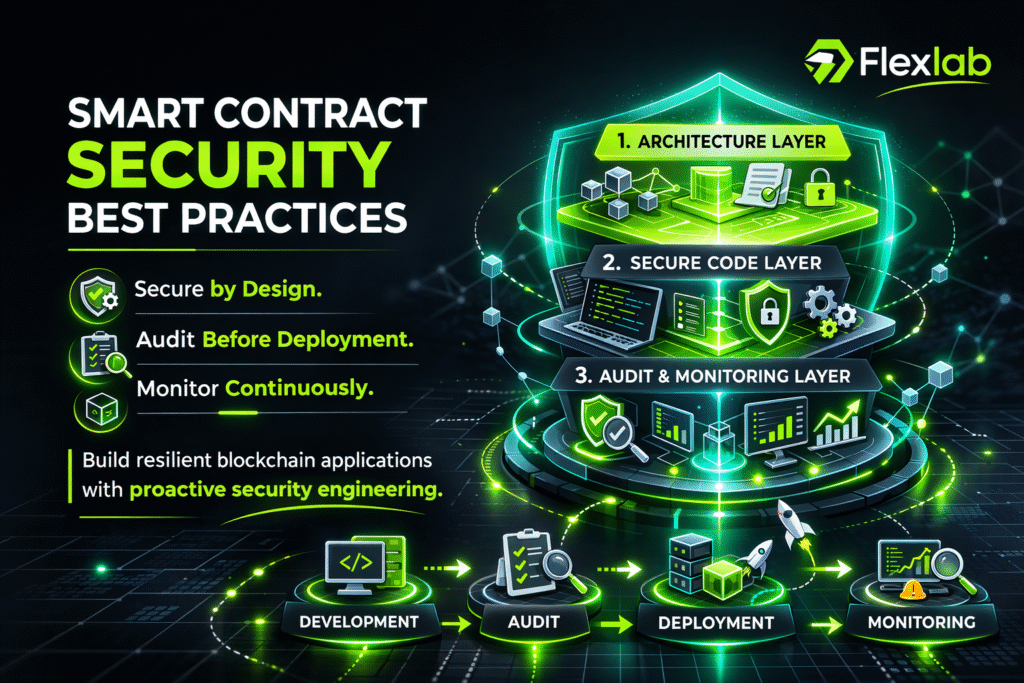
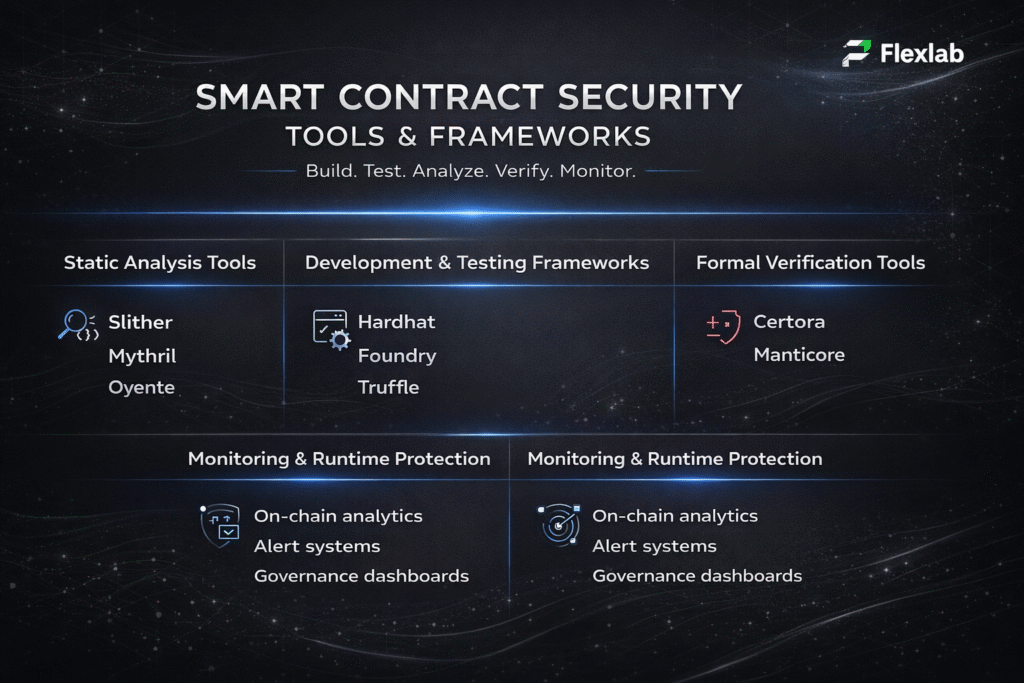
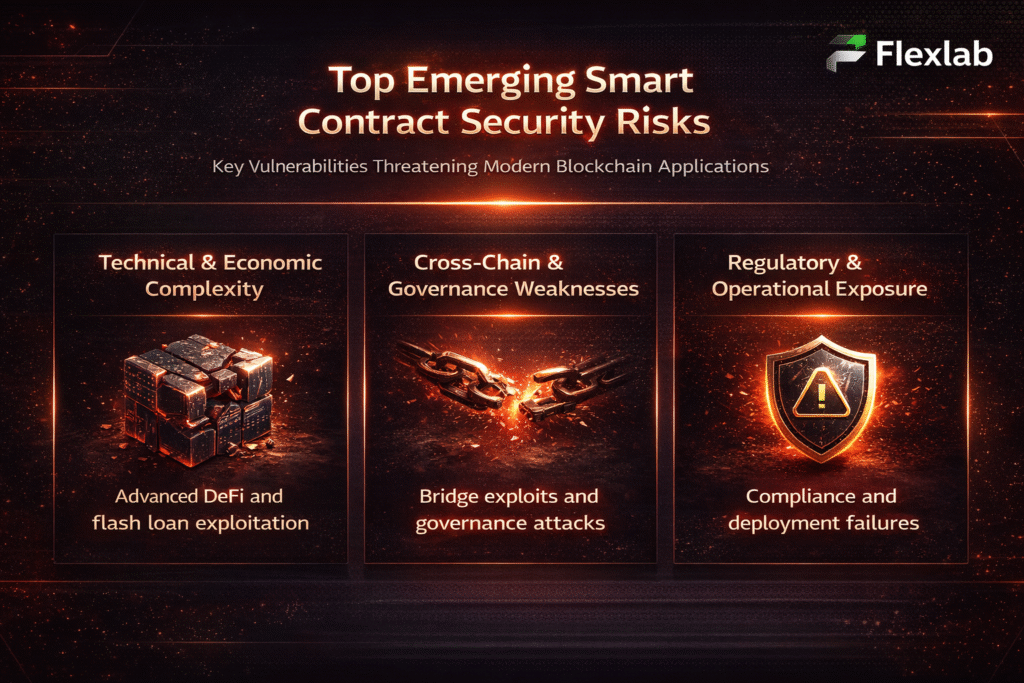
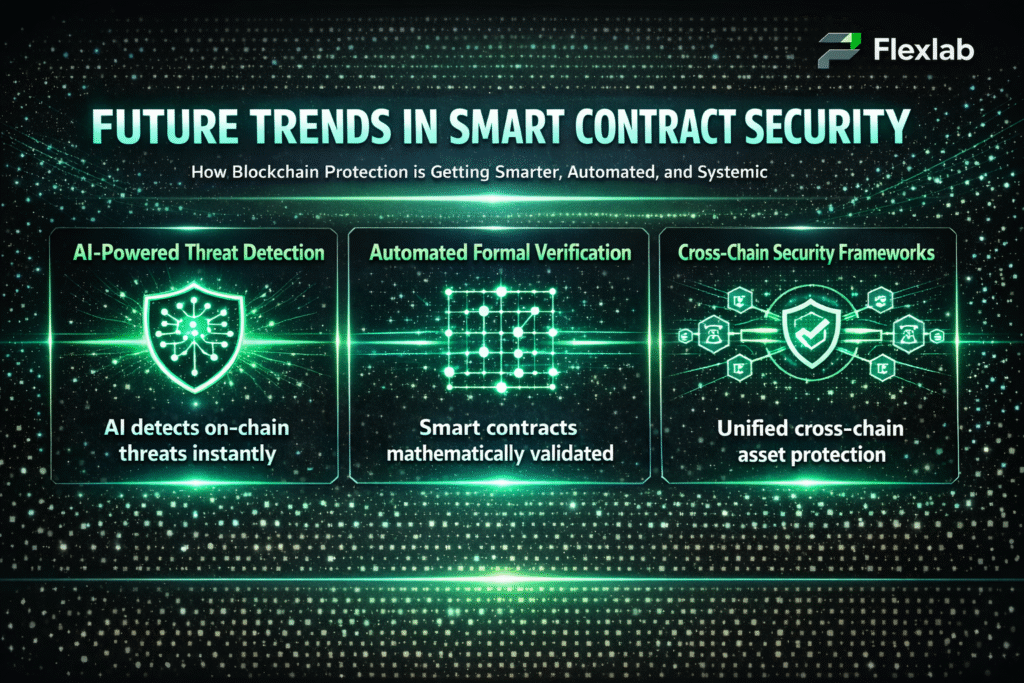
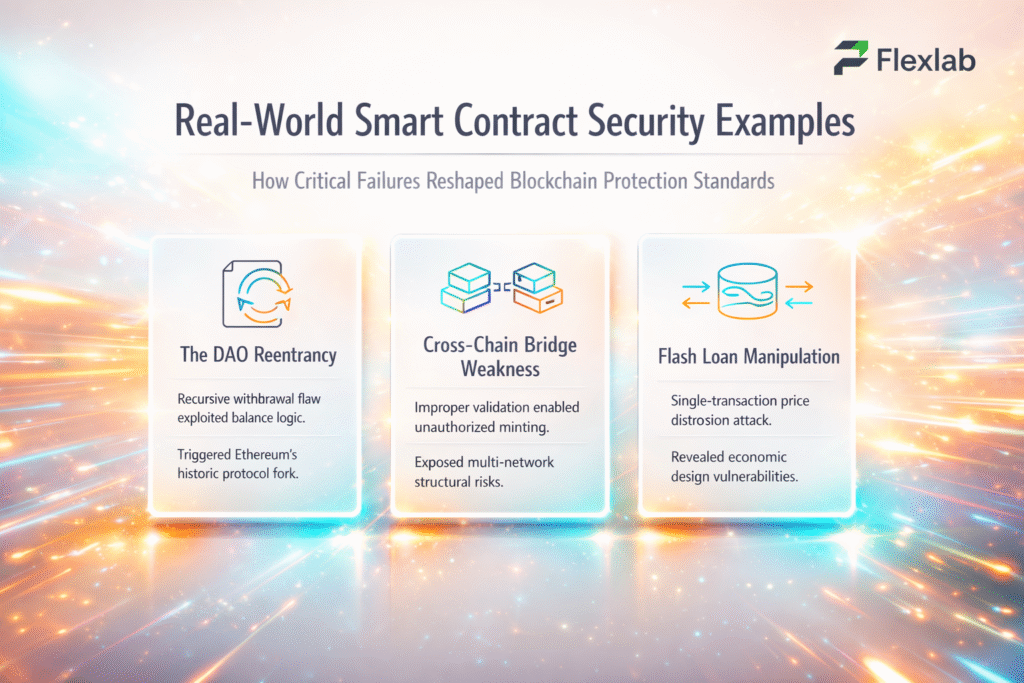
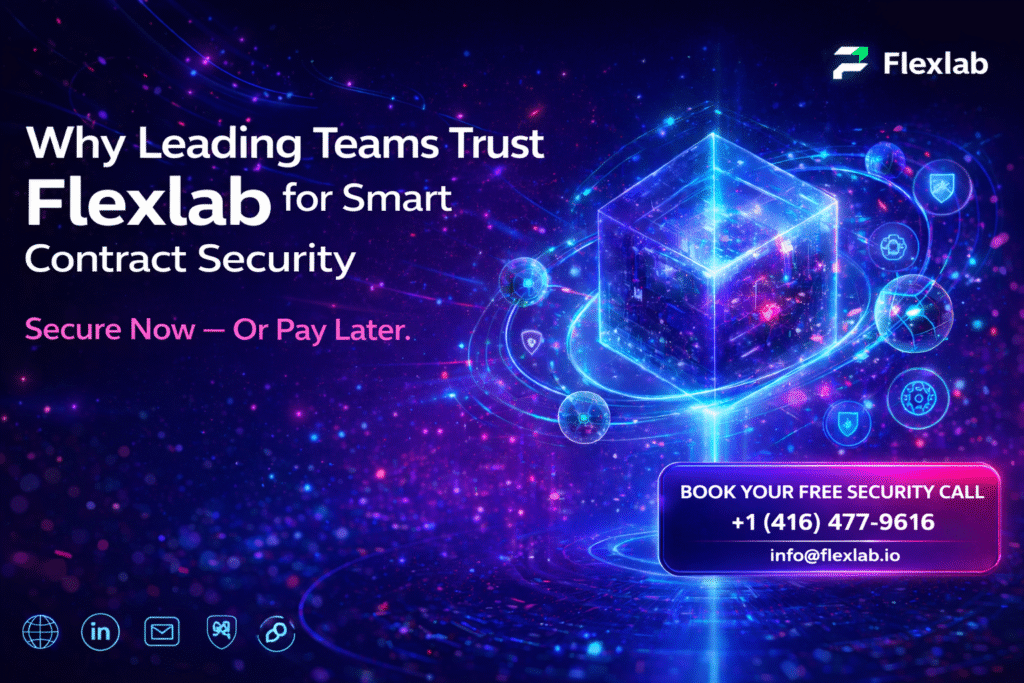
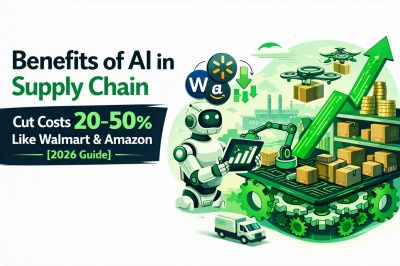
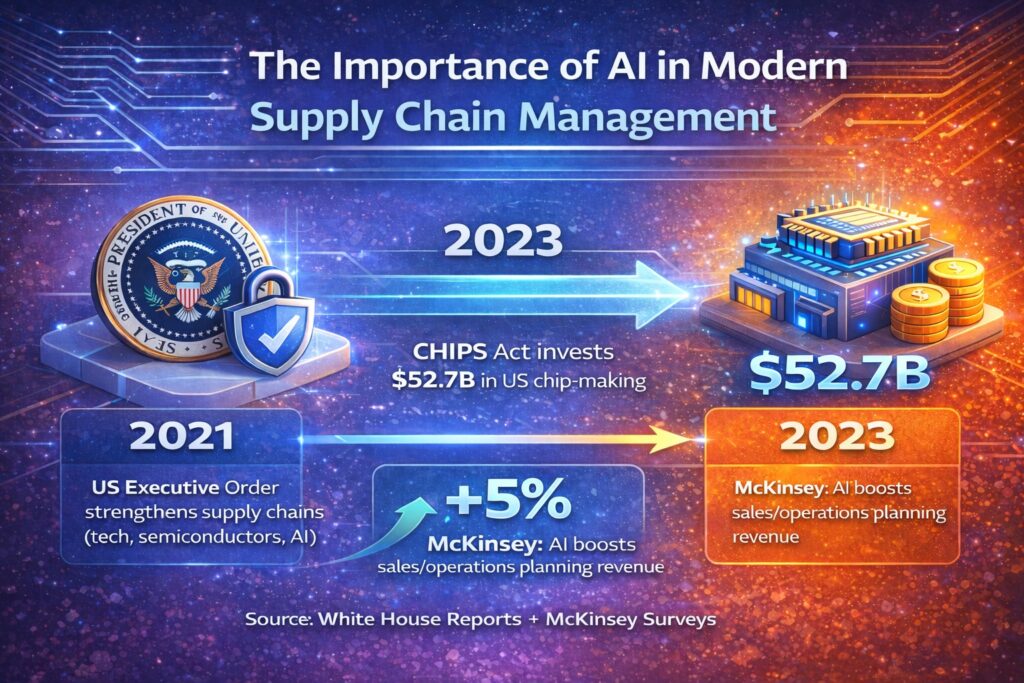
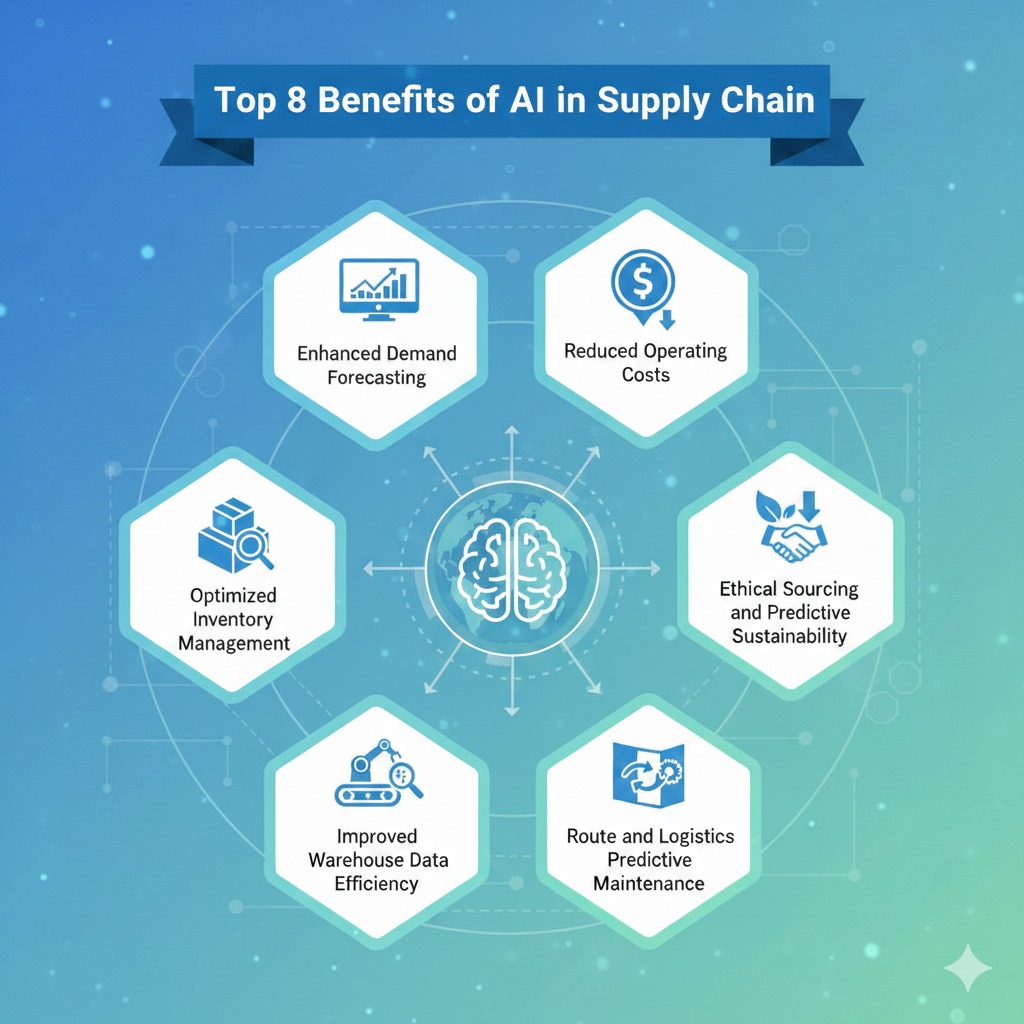
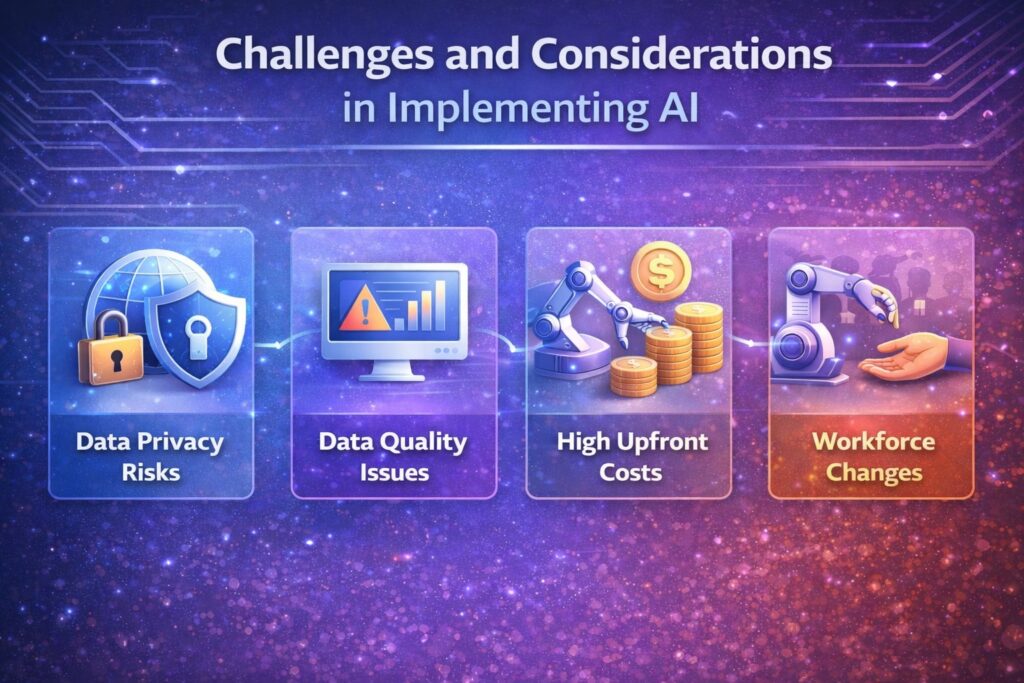
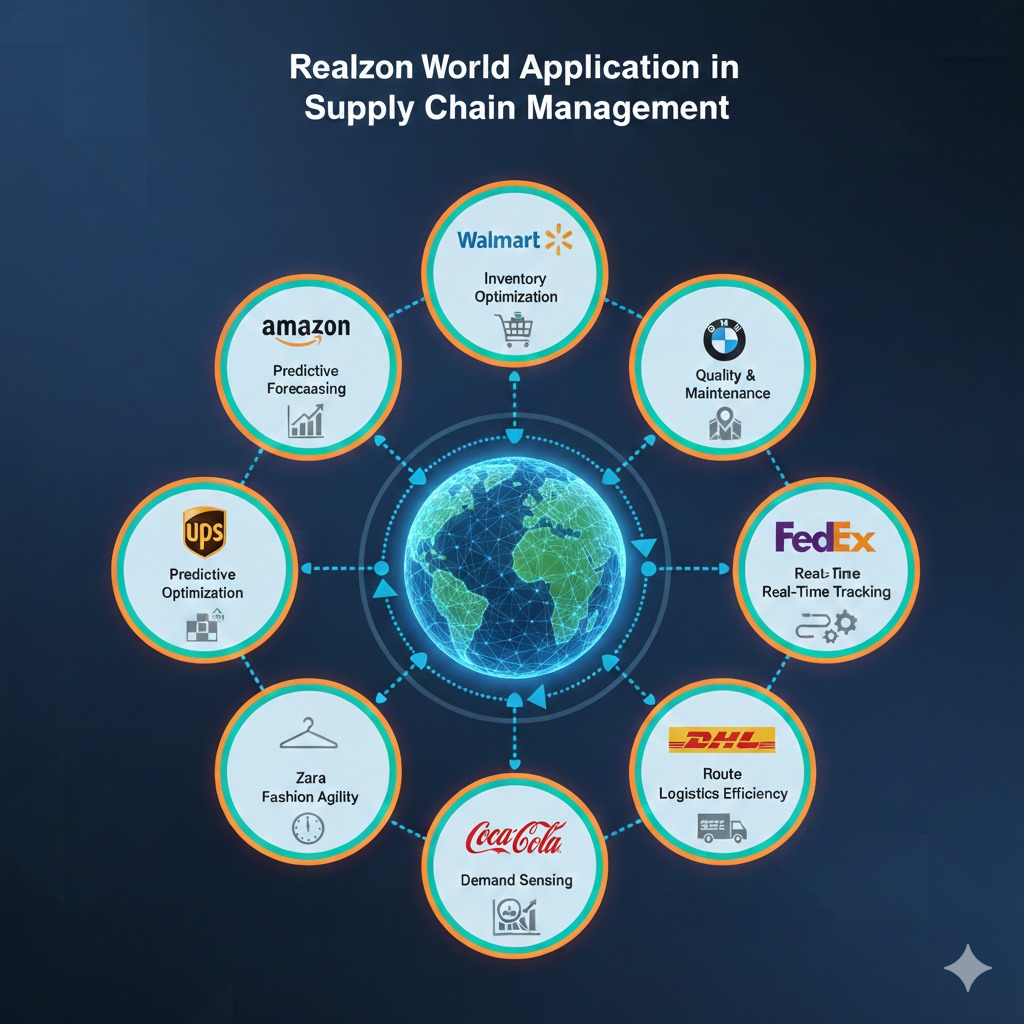
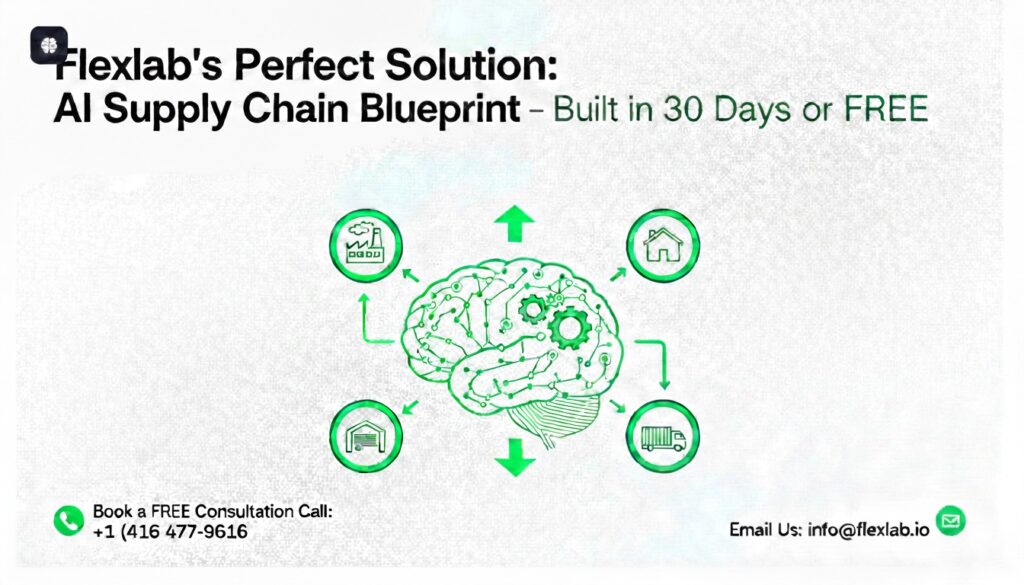
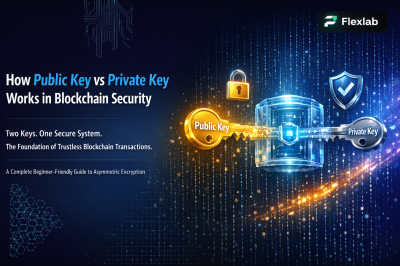
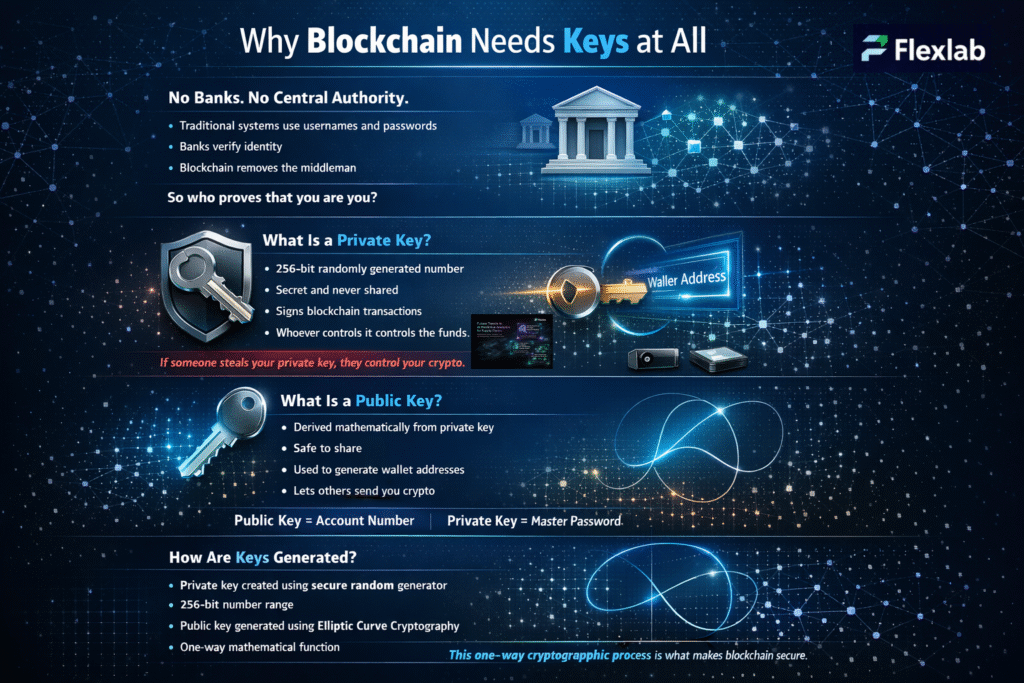
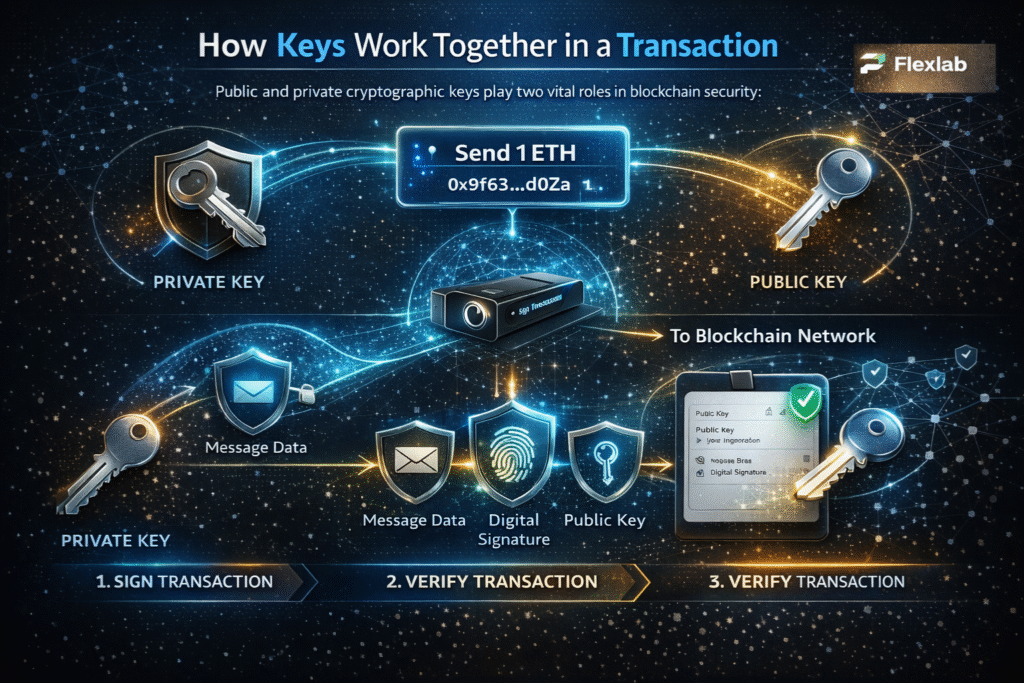
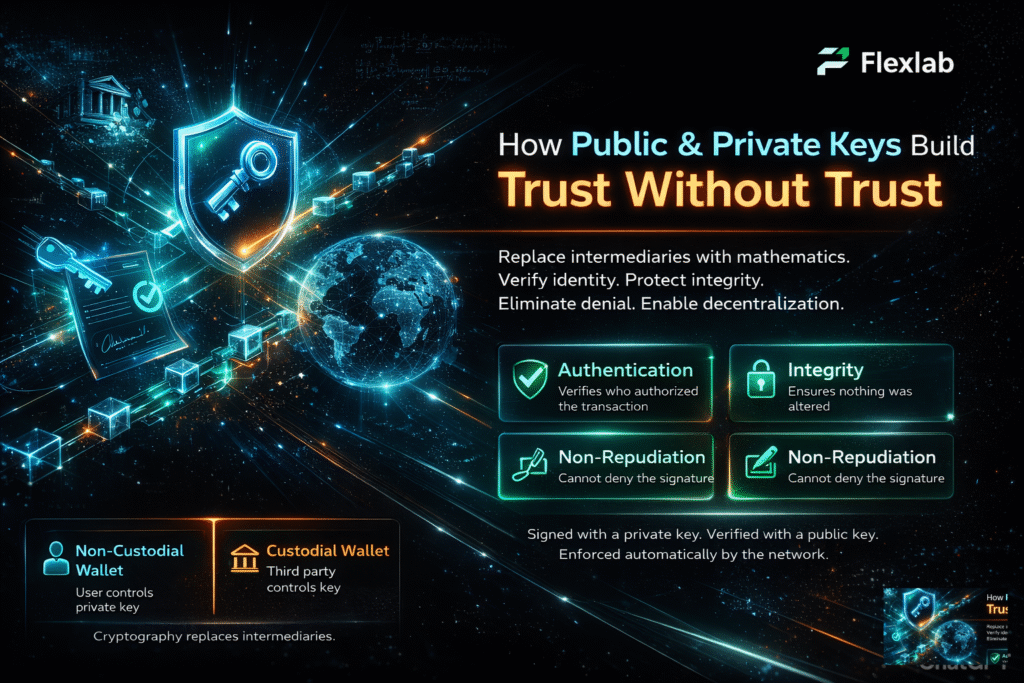
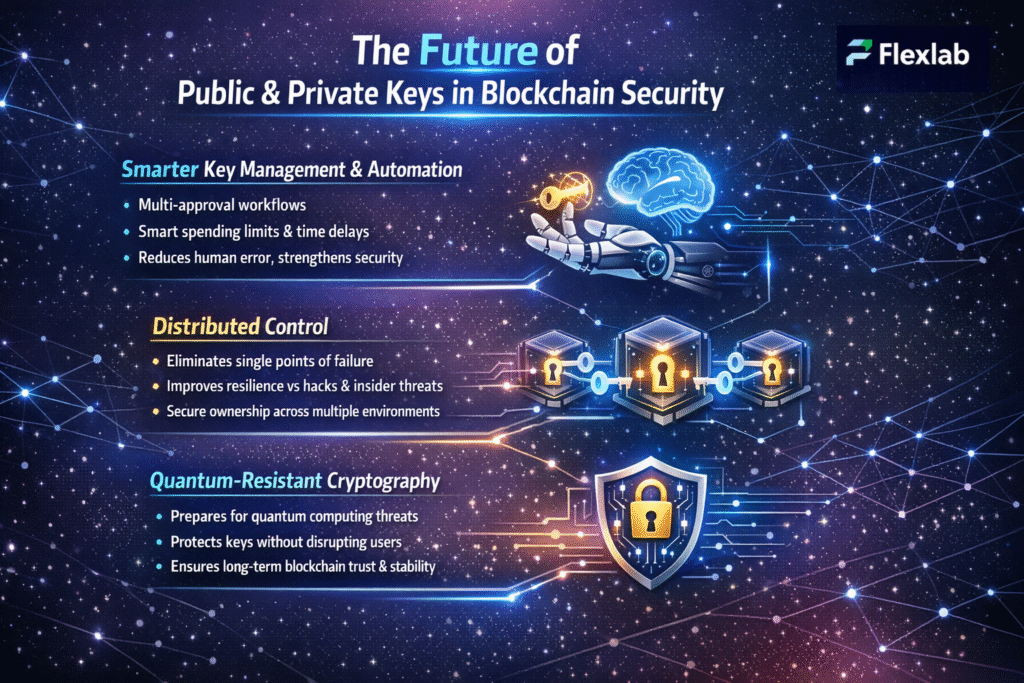
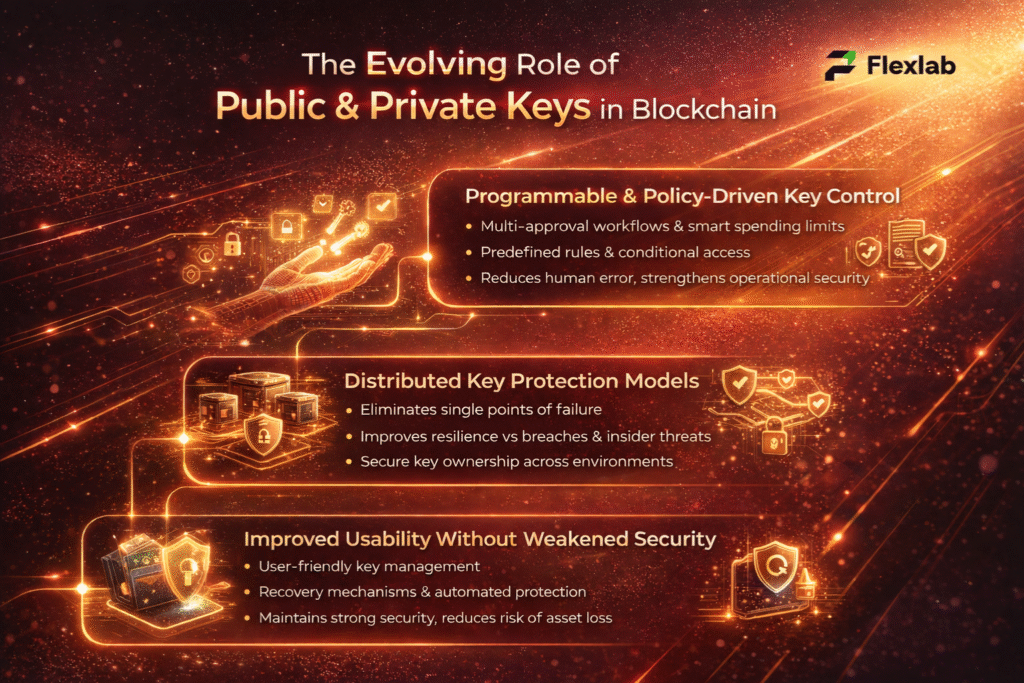
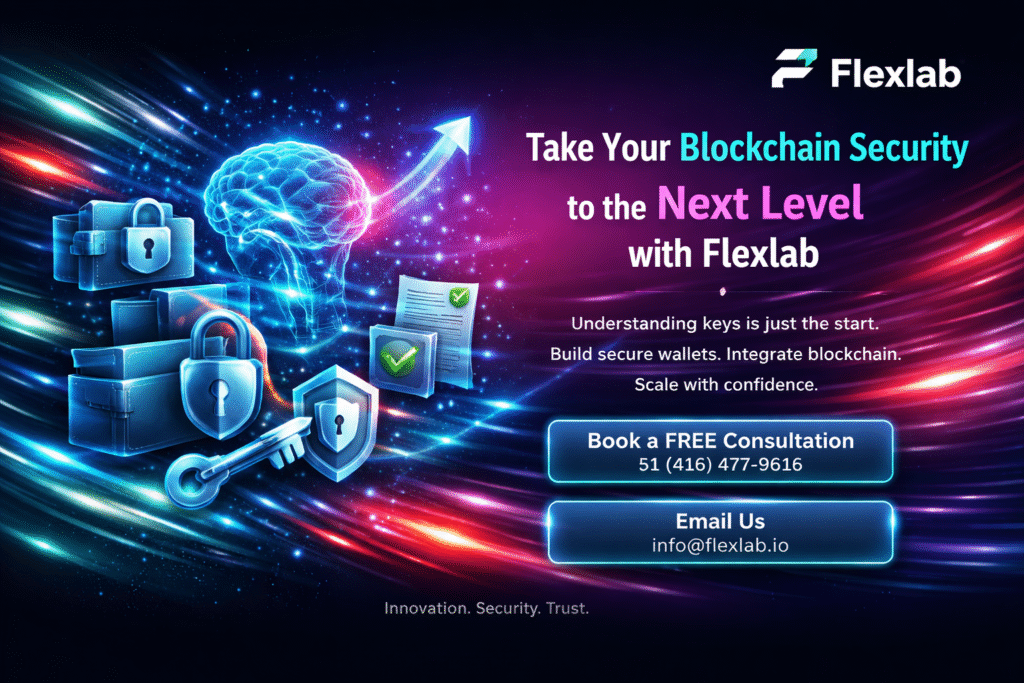

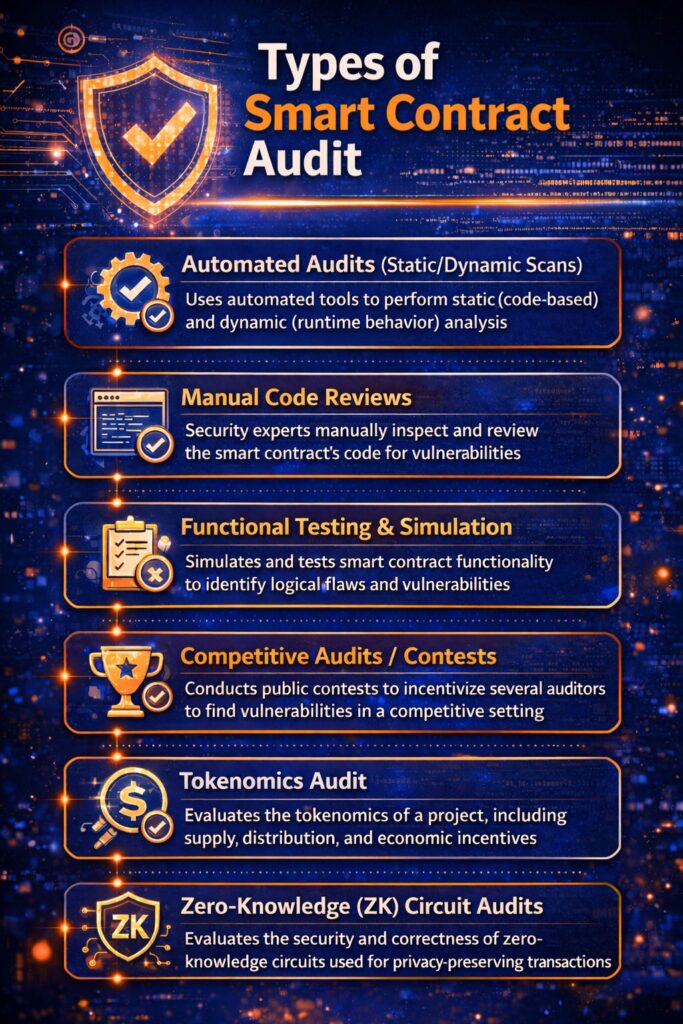
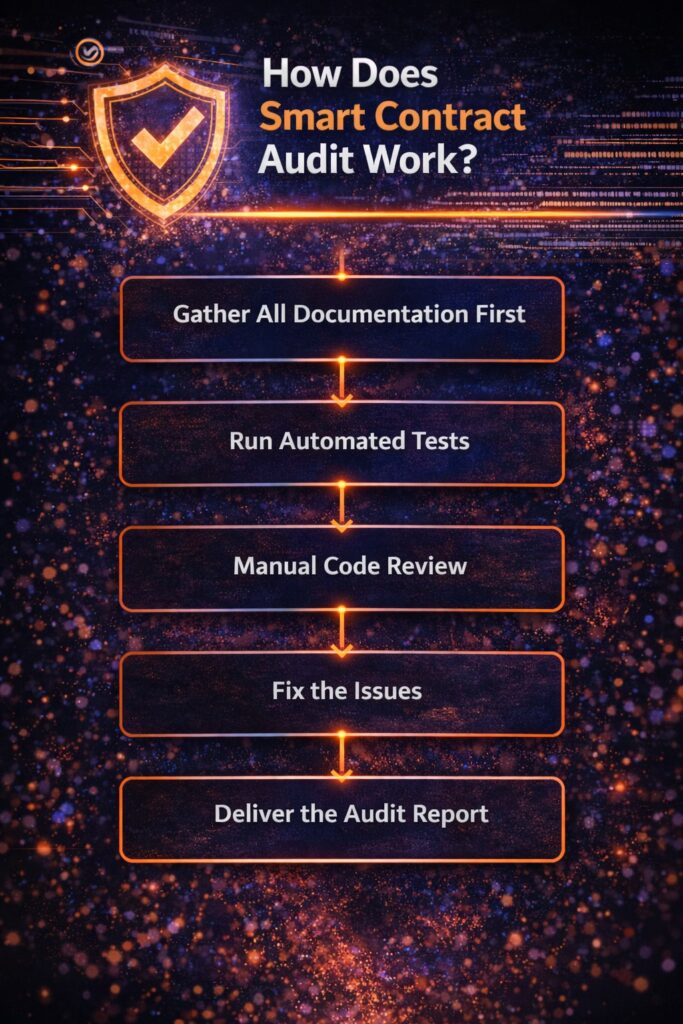
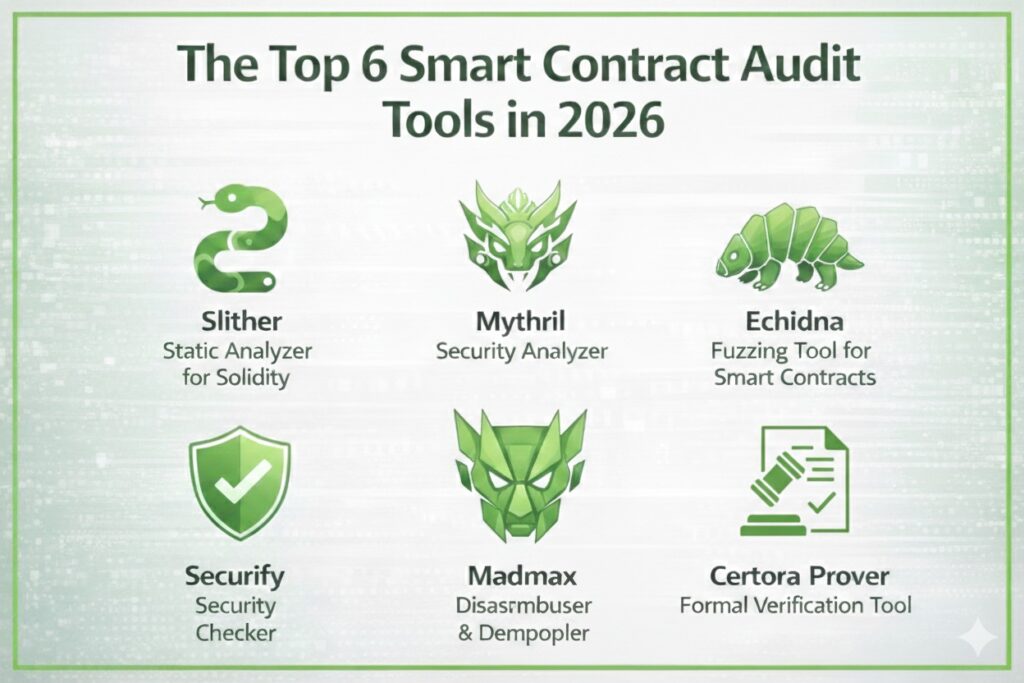
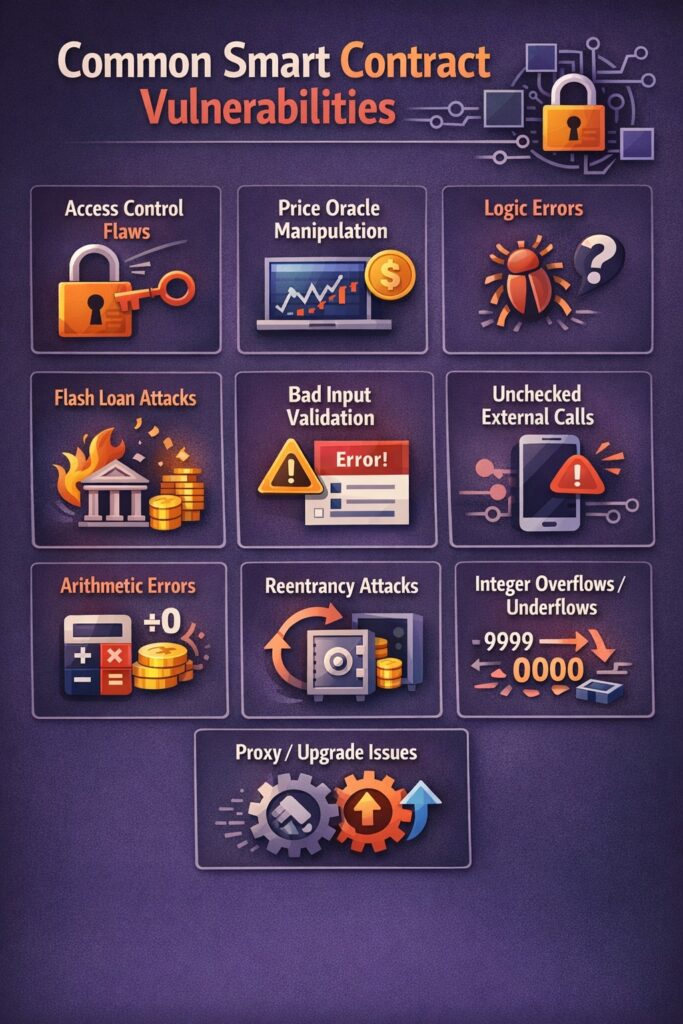
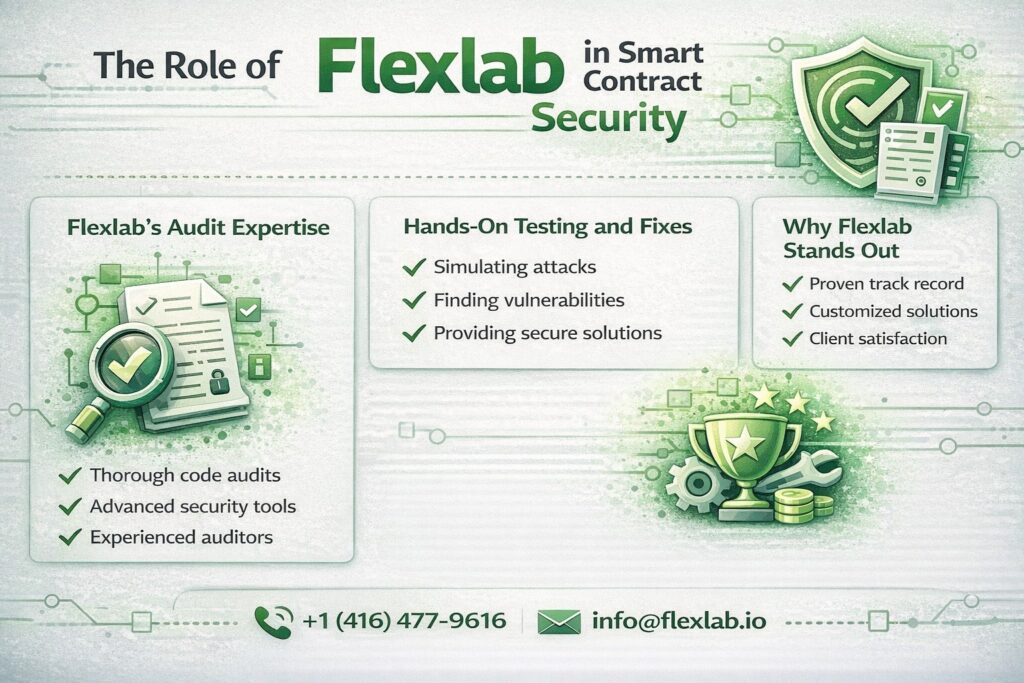
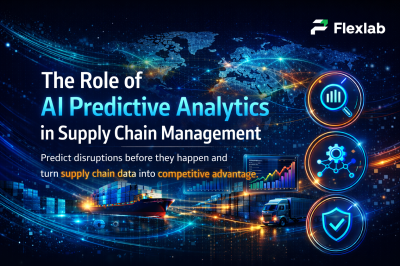
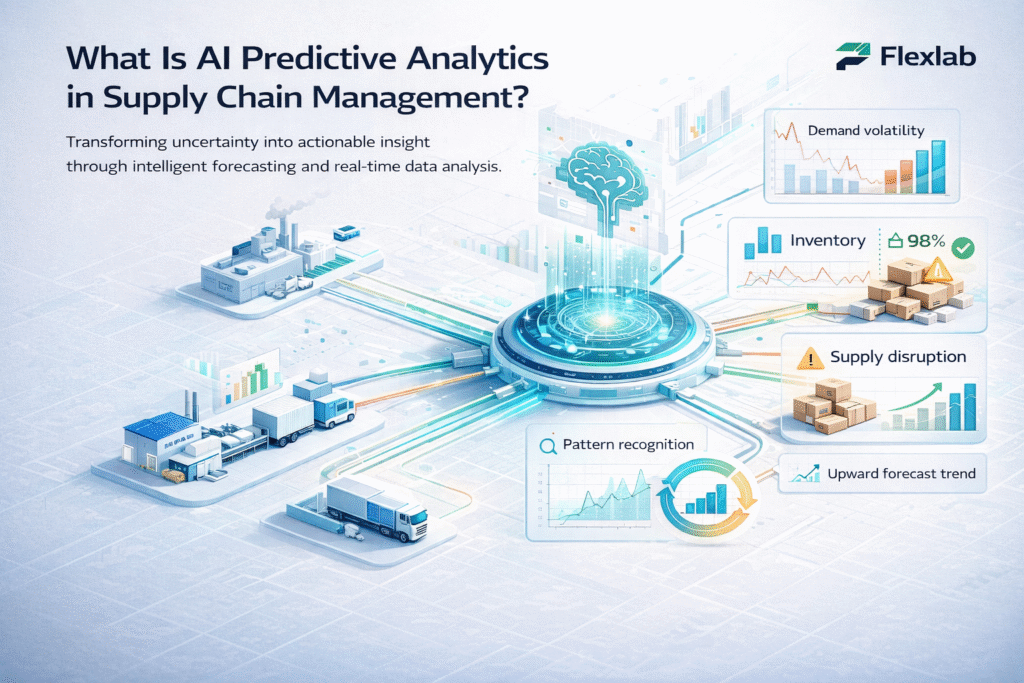
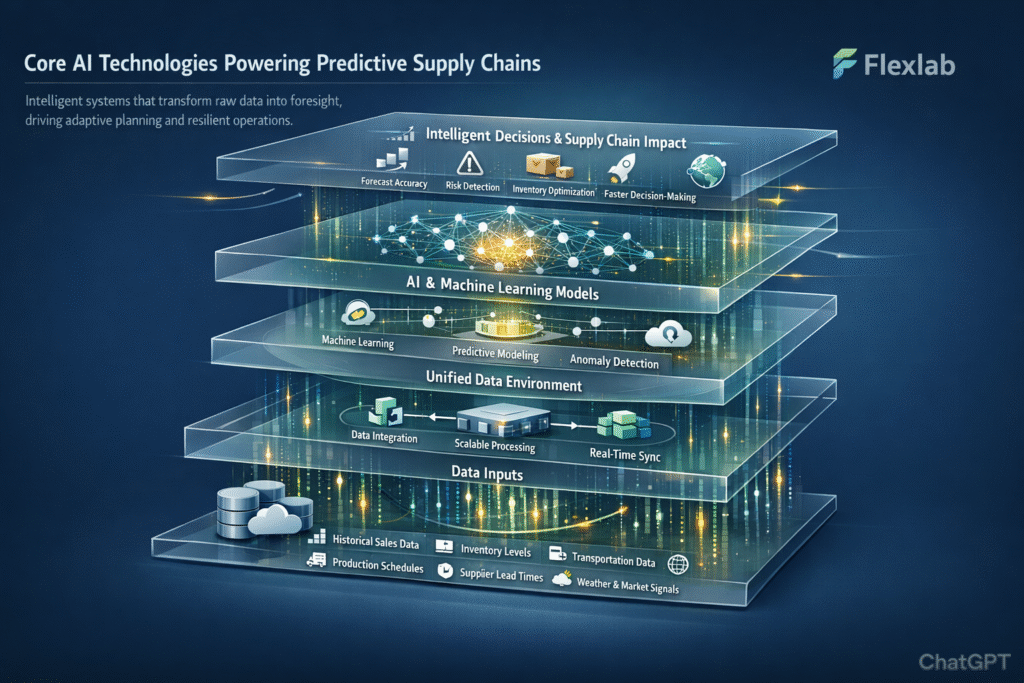
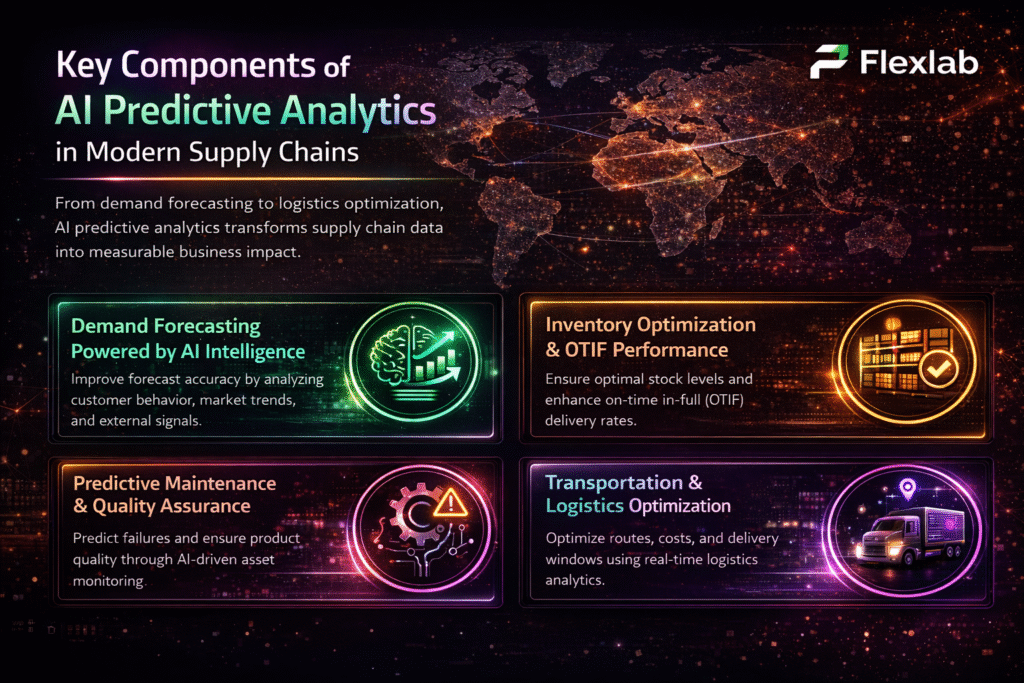
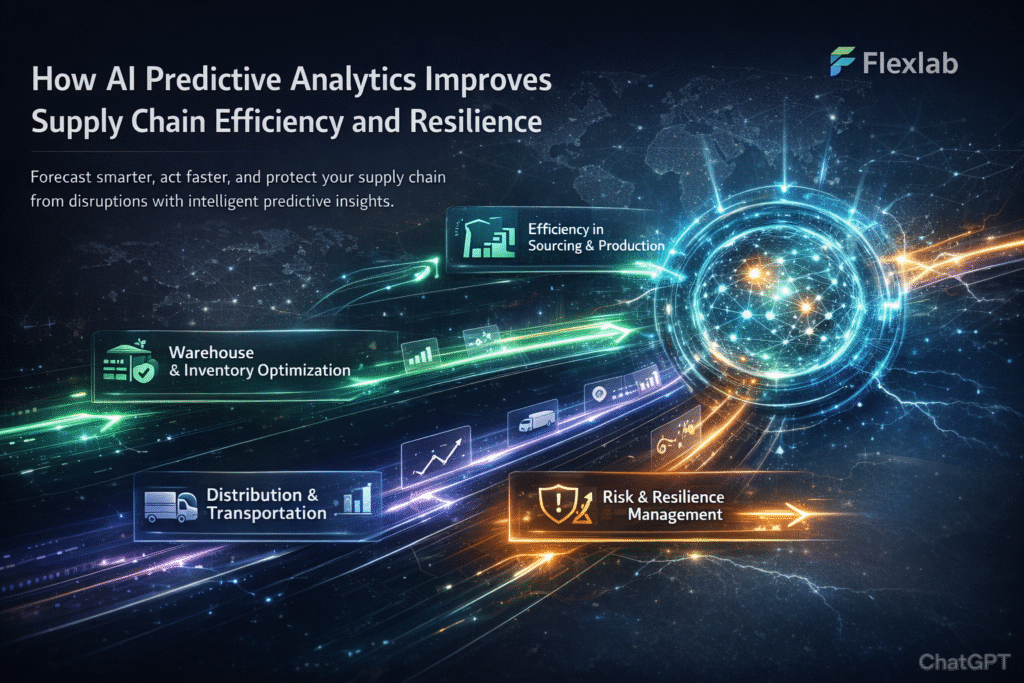
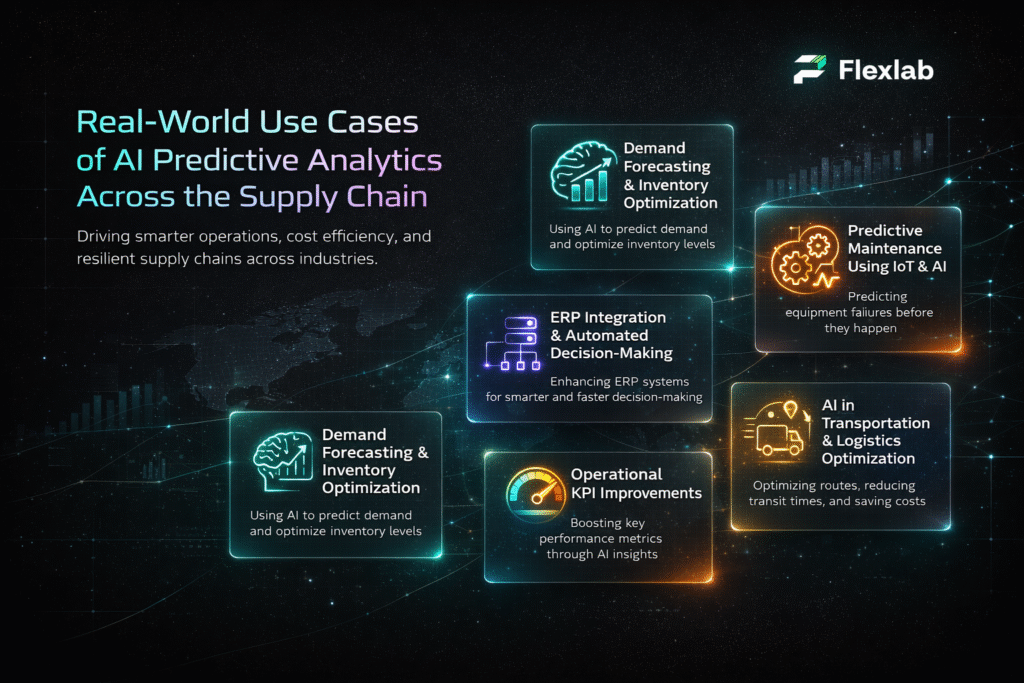
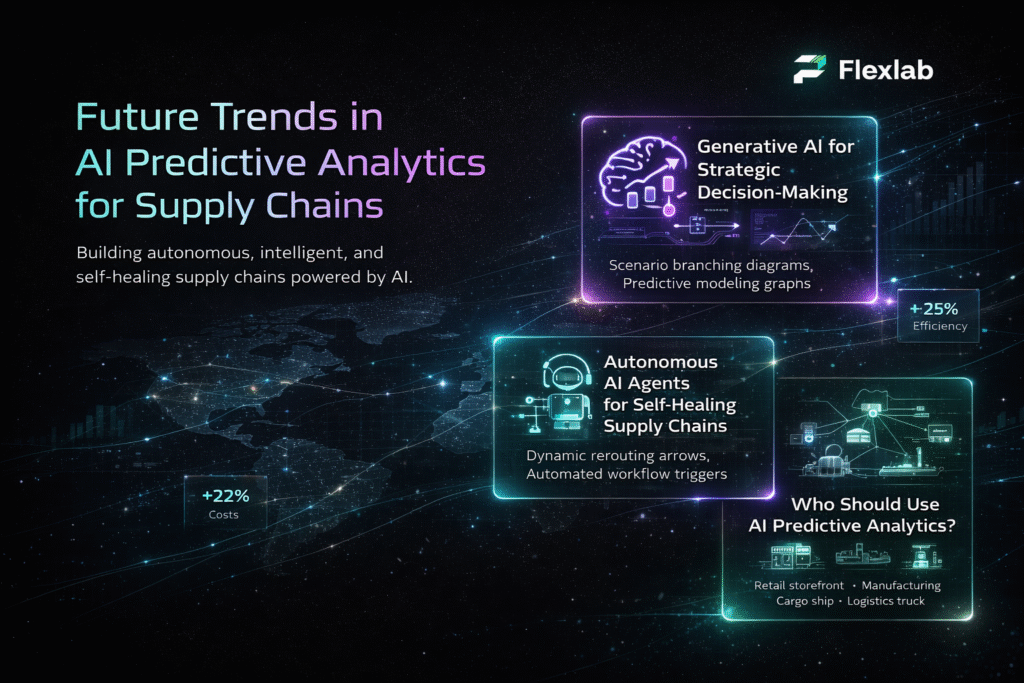
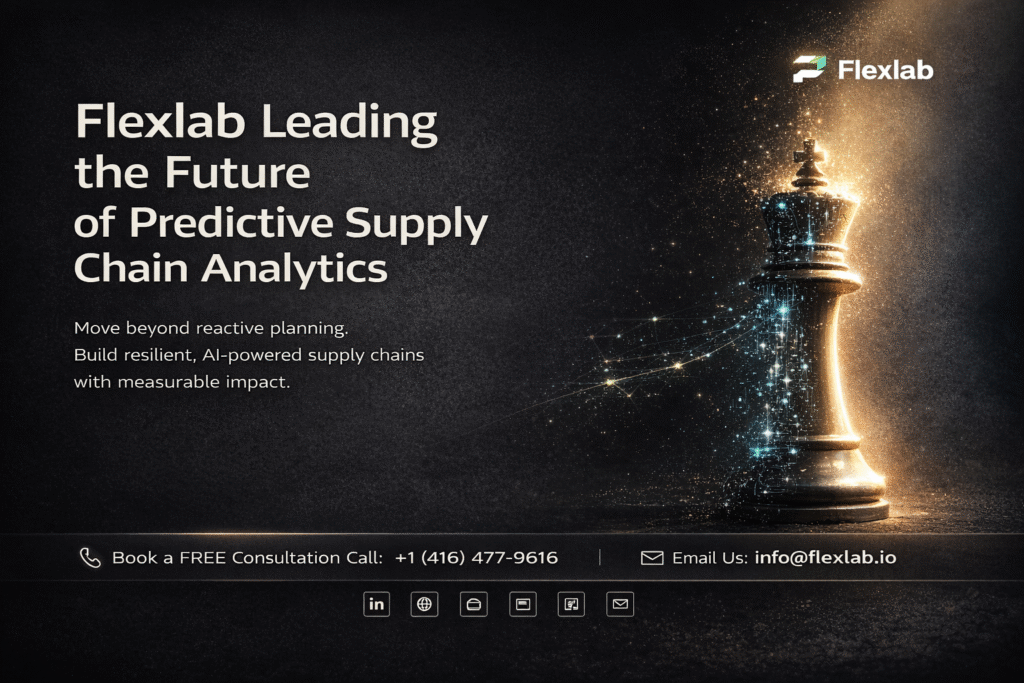
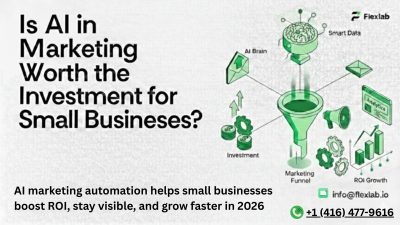
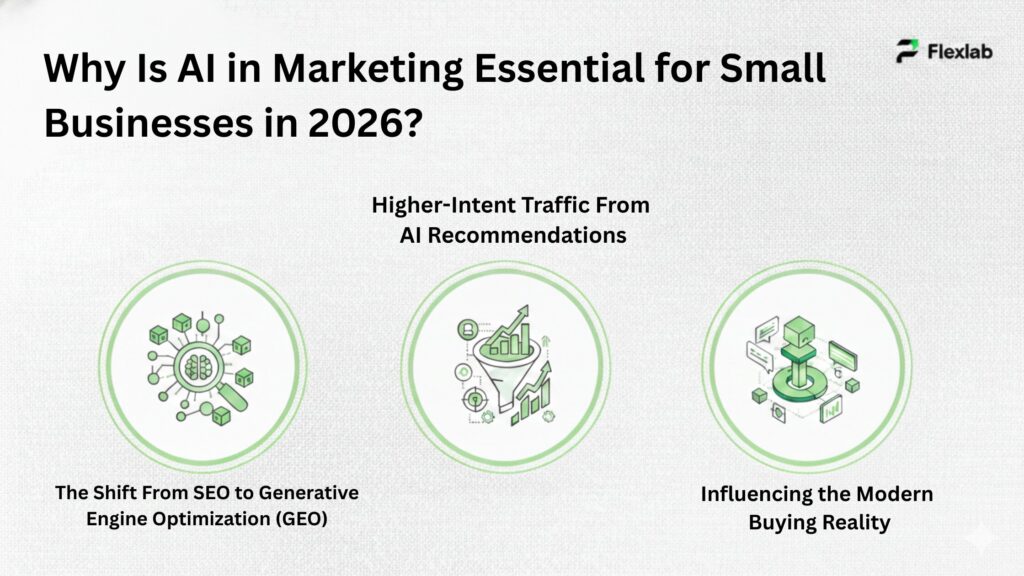
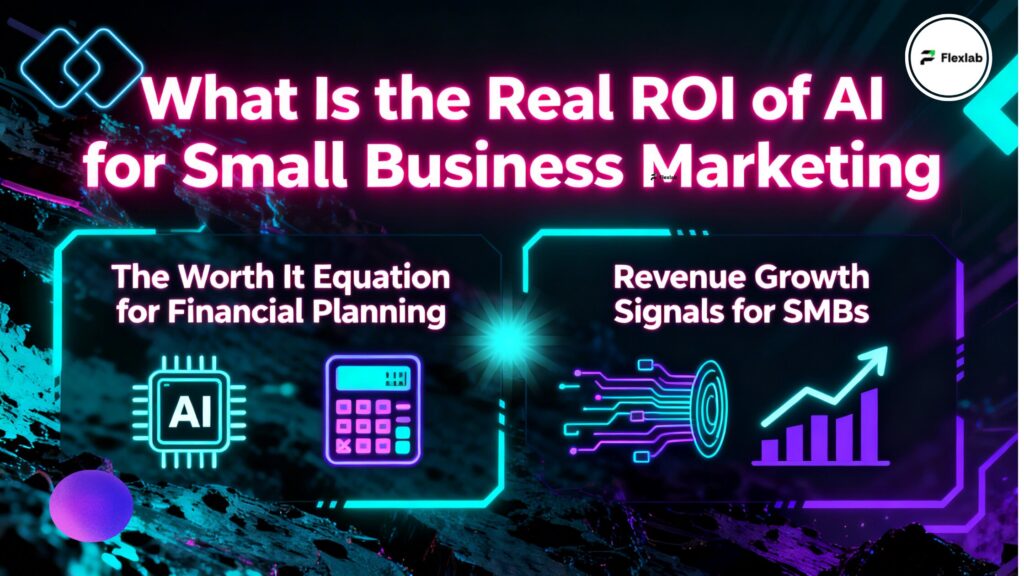
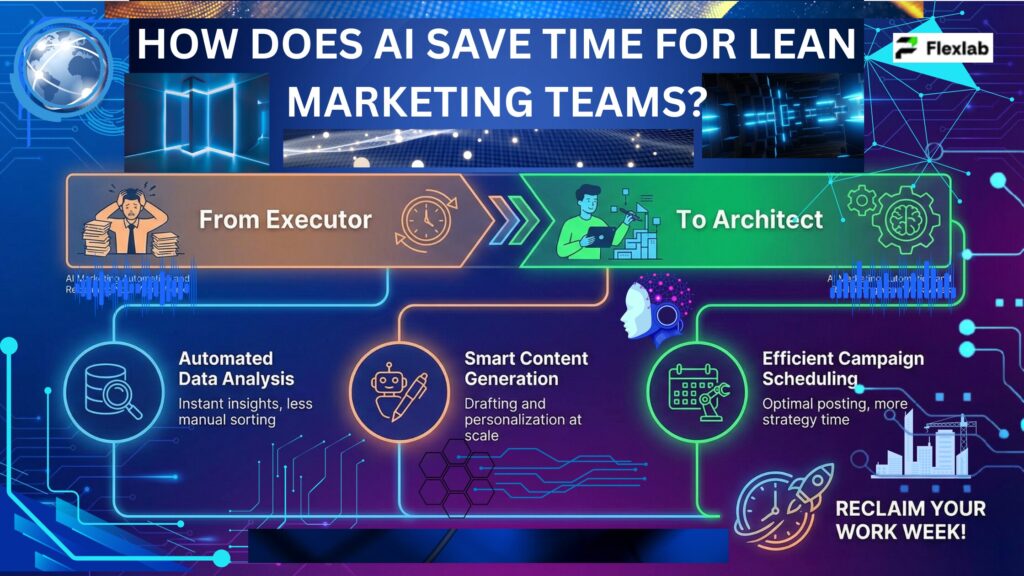
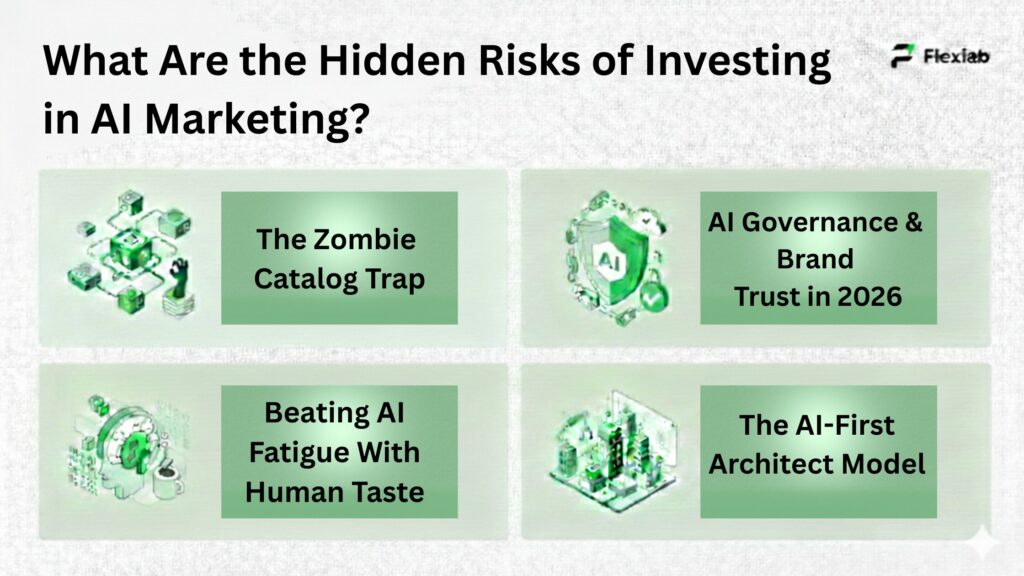
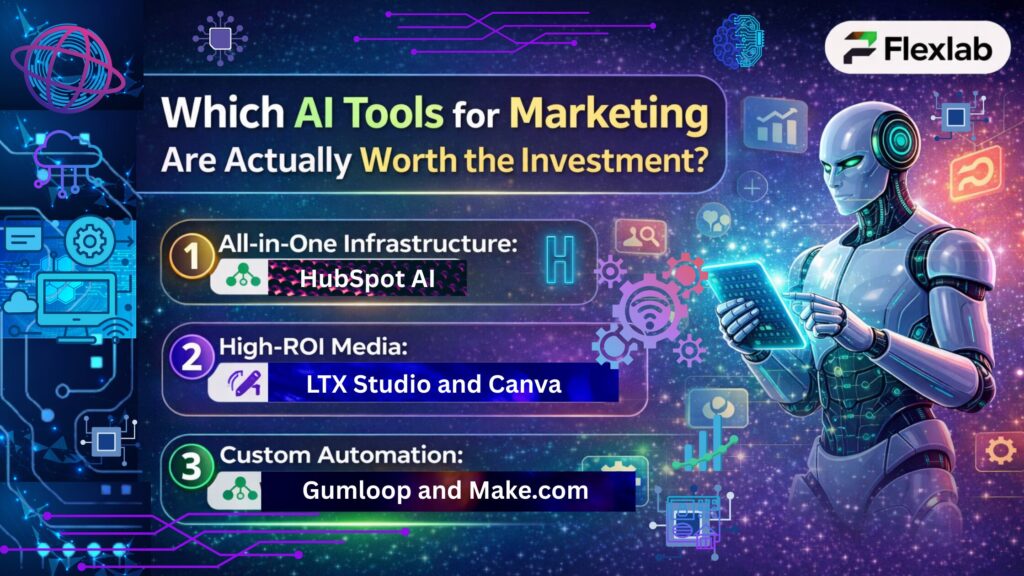
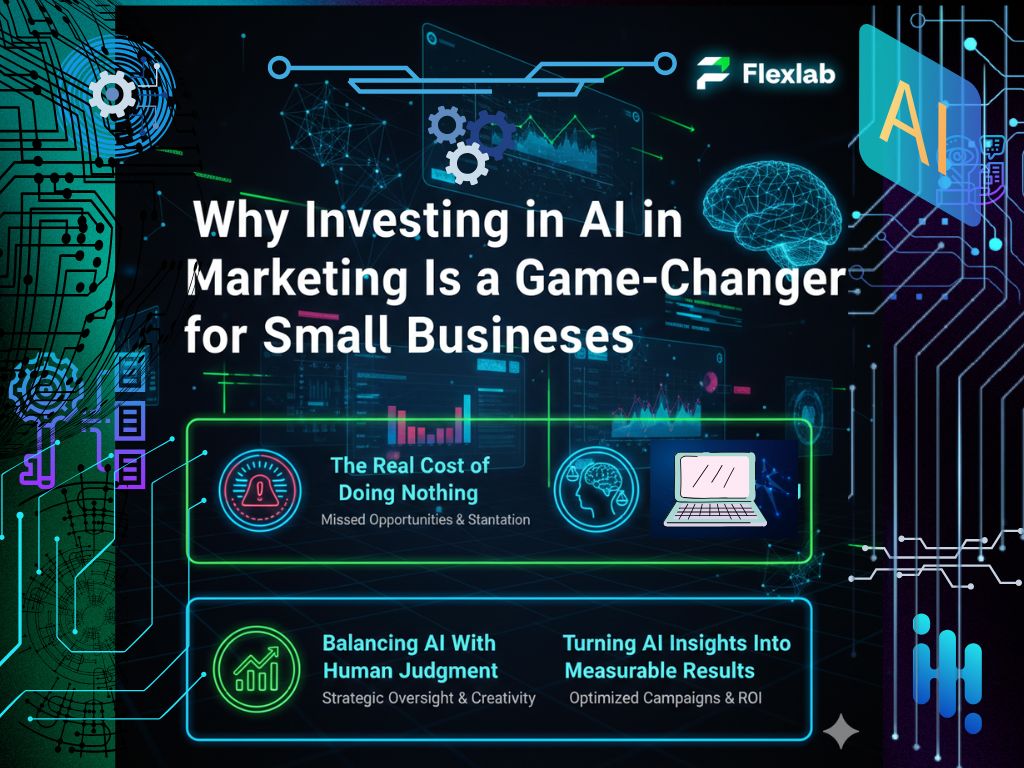
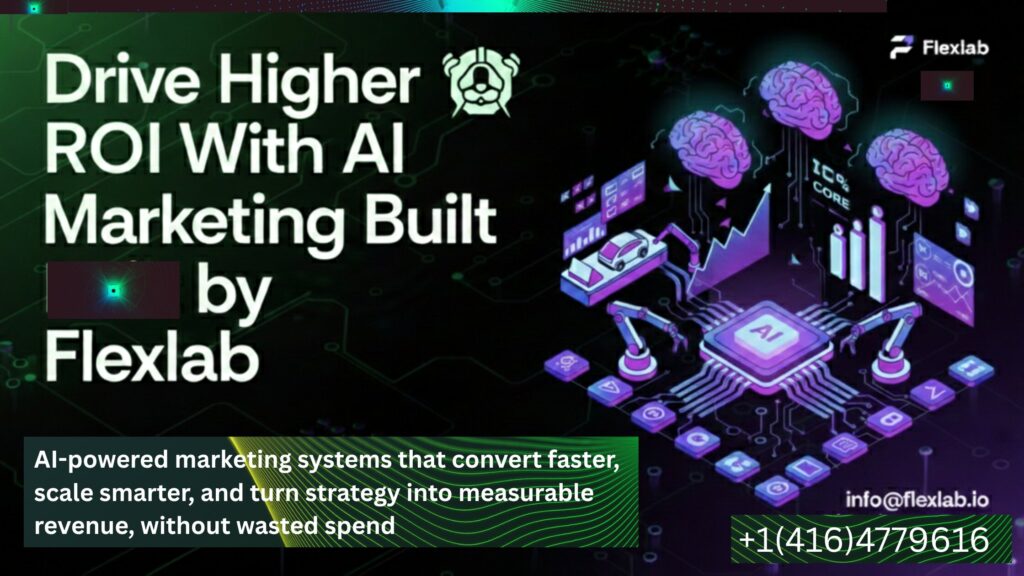



3 Responses
Your point of view caught my eye and was very interesting. Thanks. I have a question for you.
Thanks for sharing. I read many of your blog posts, cool, your blog is very good.